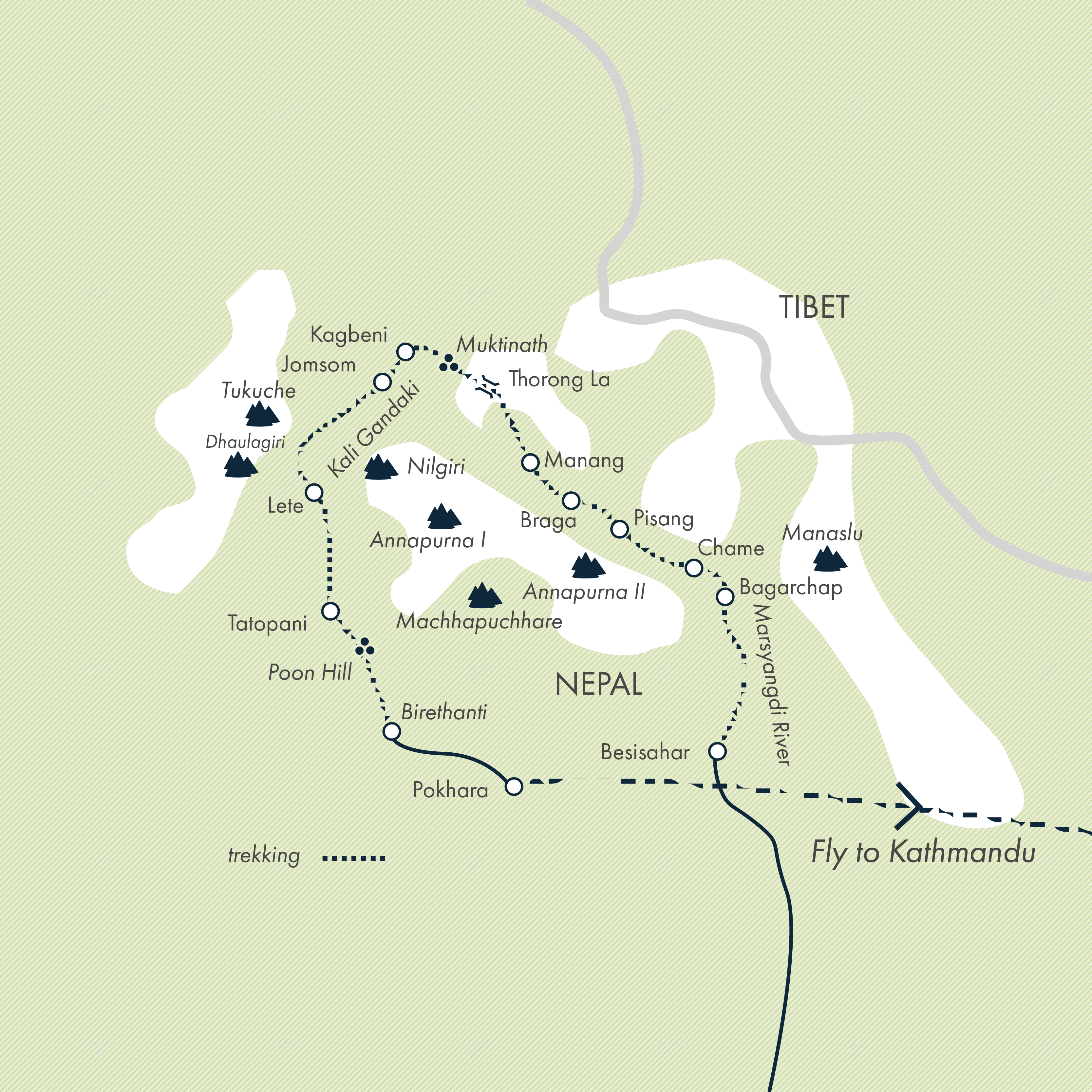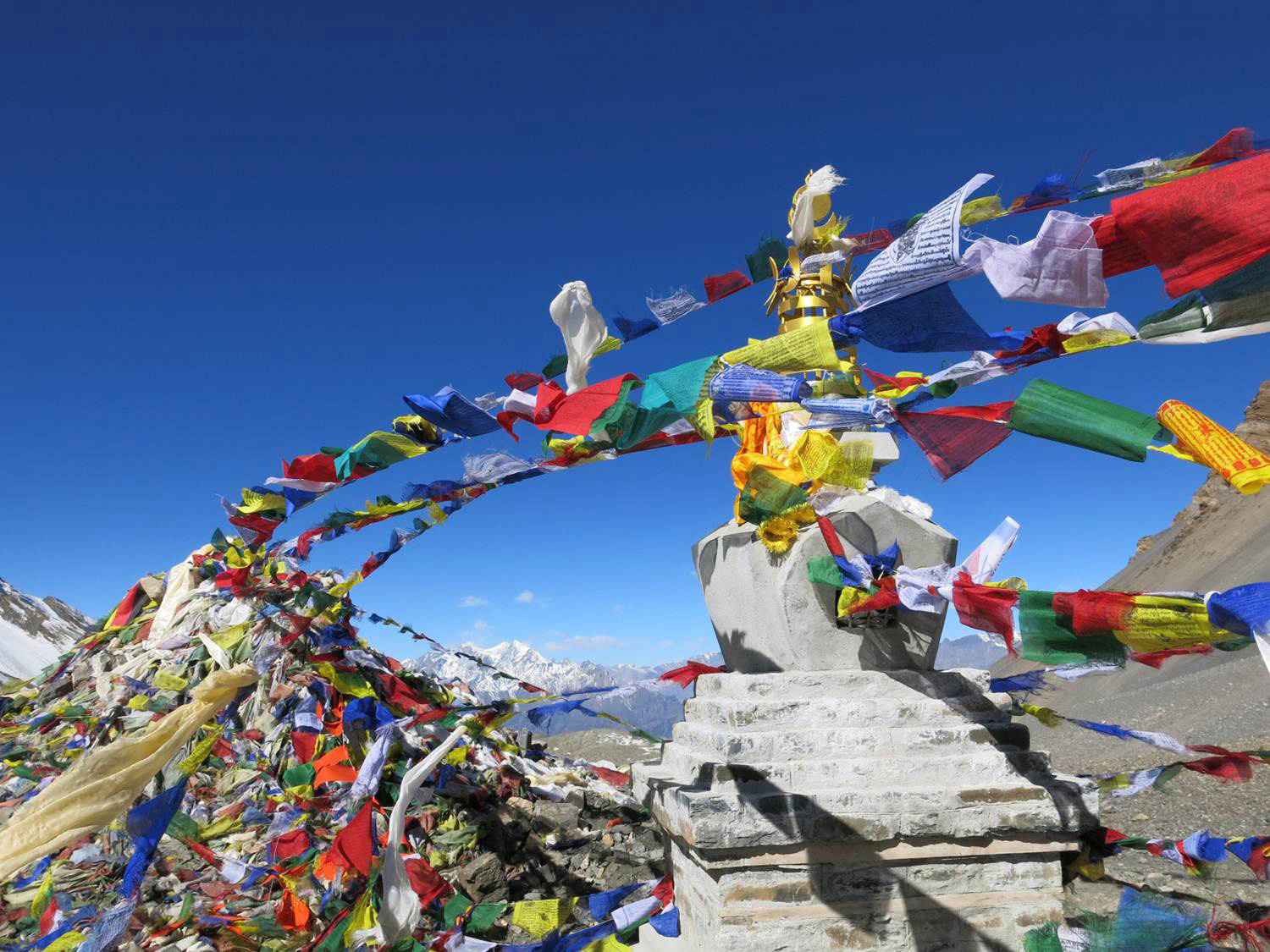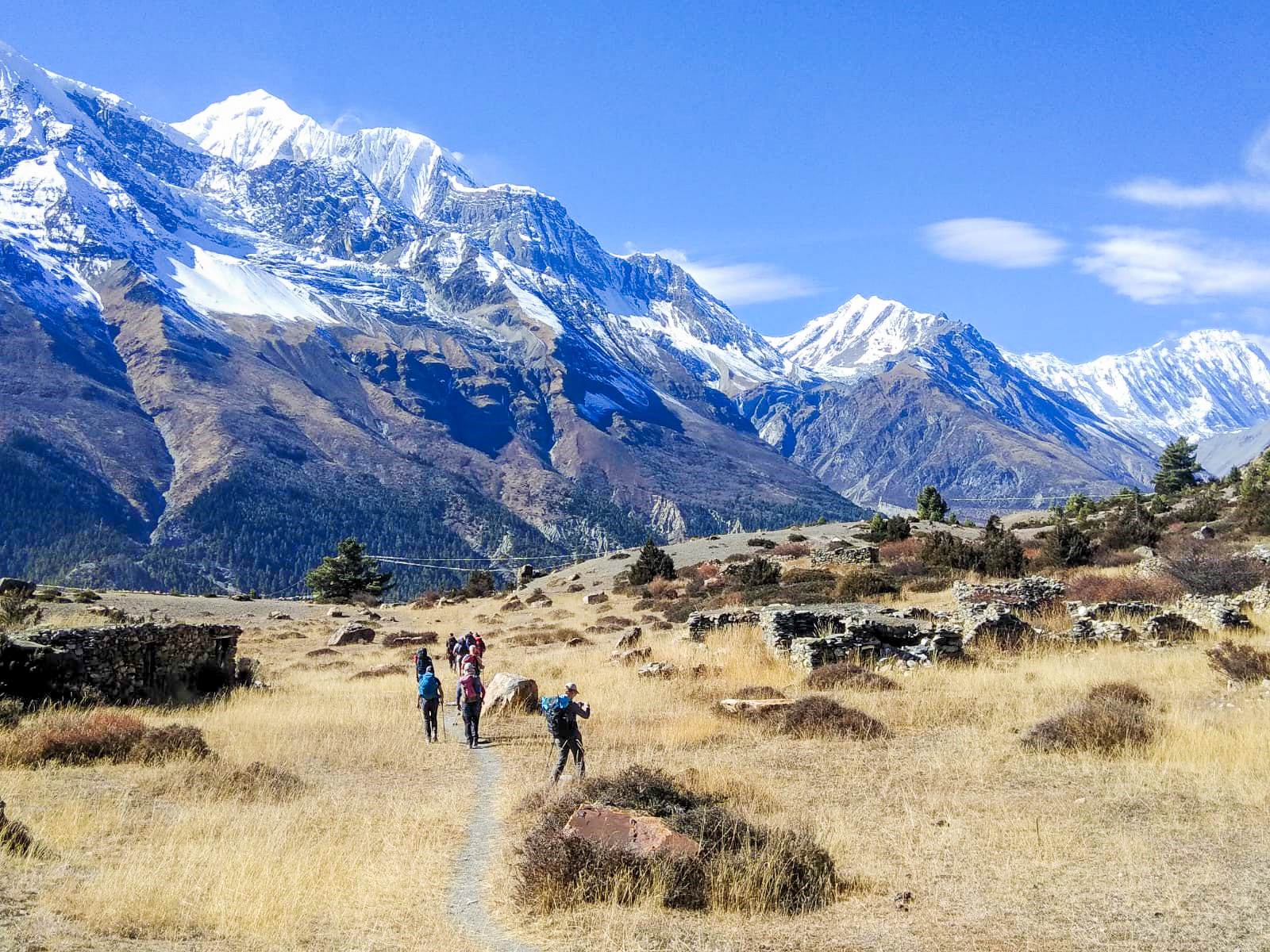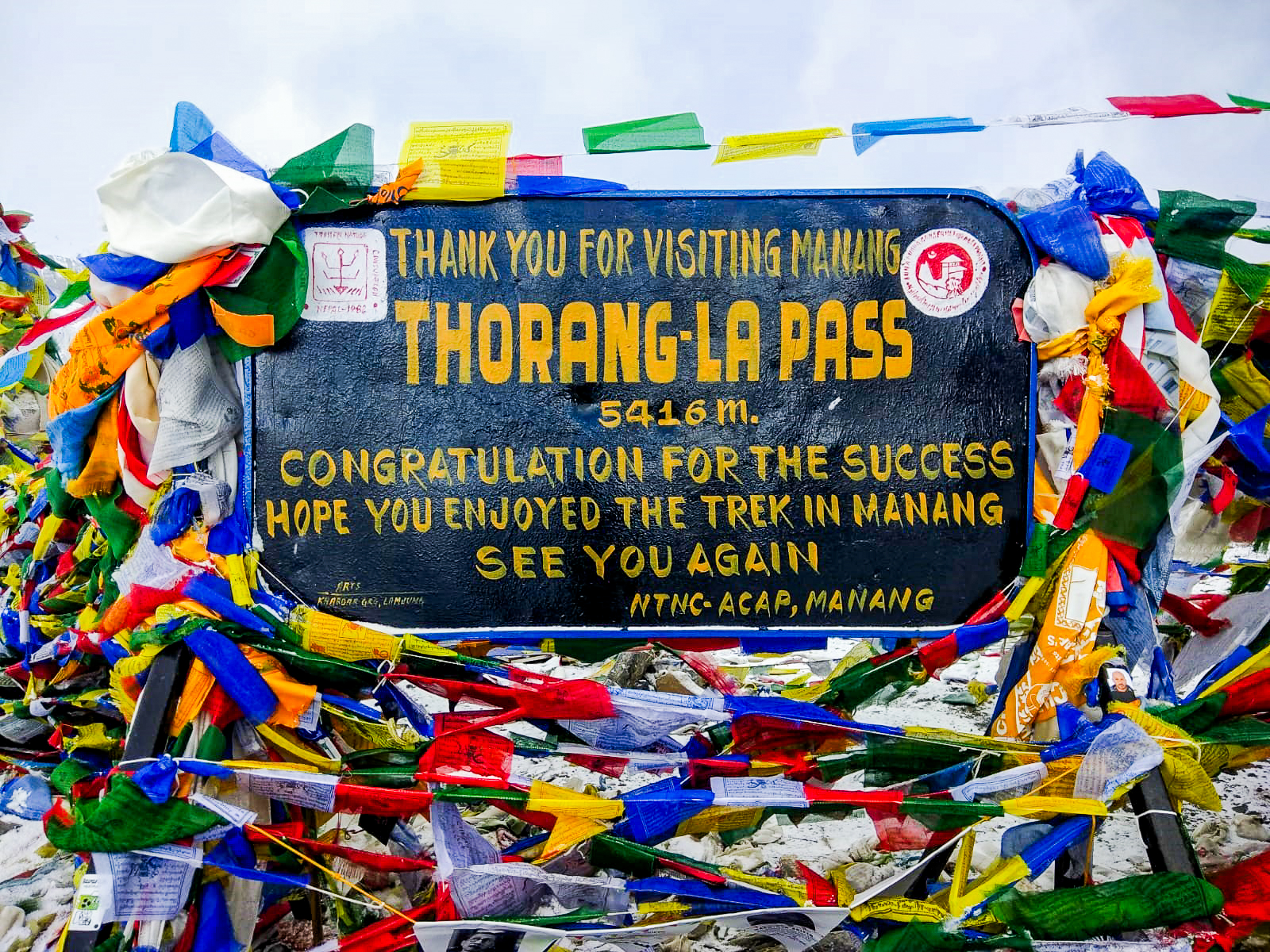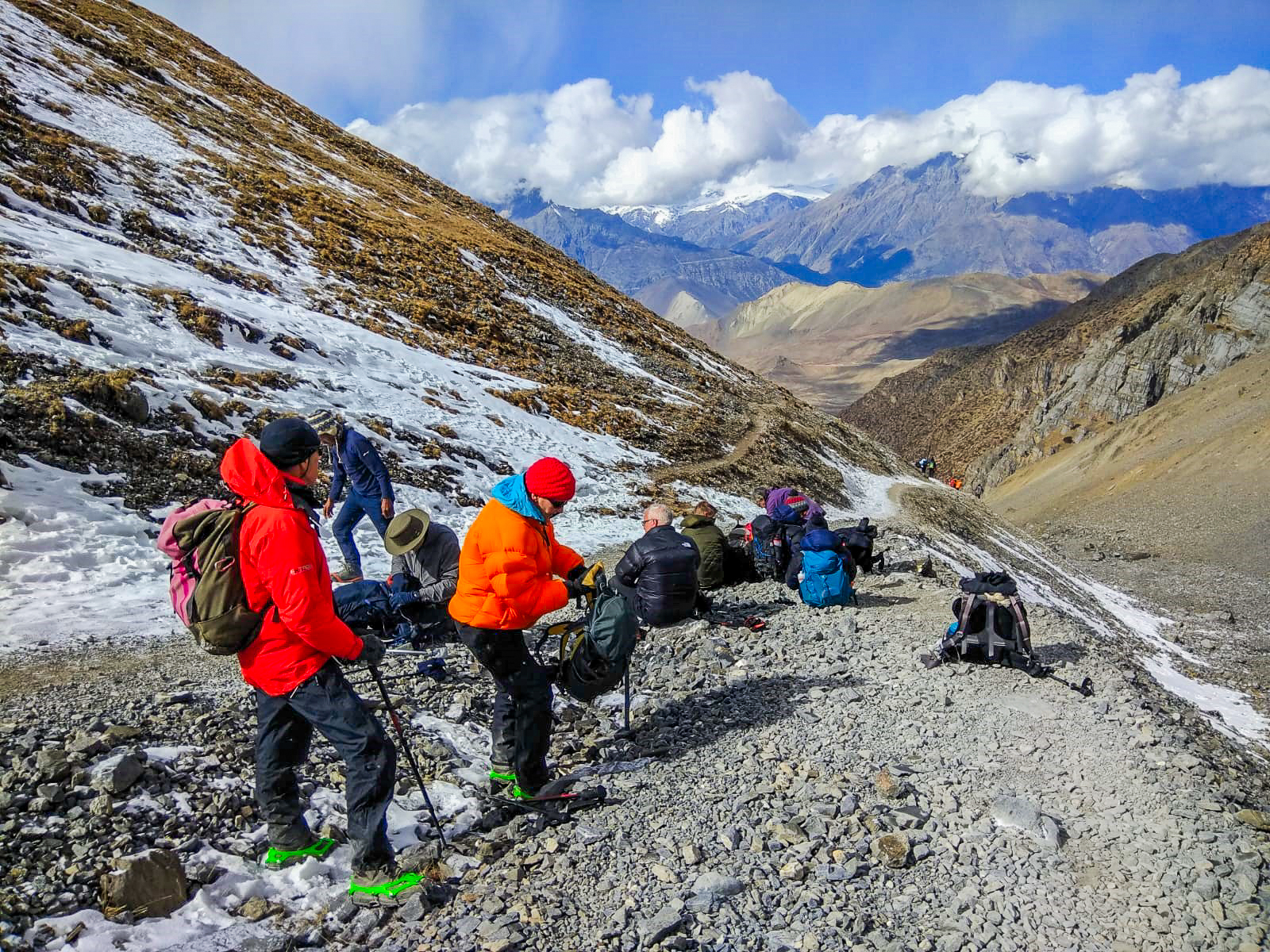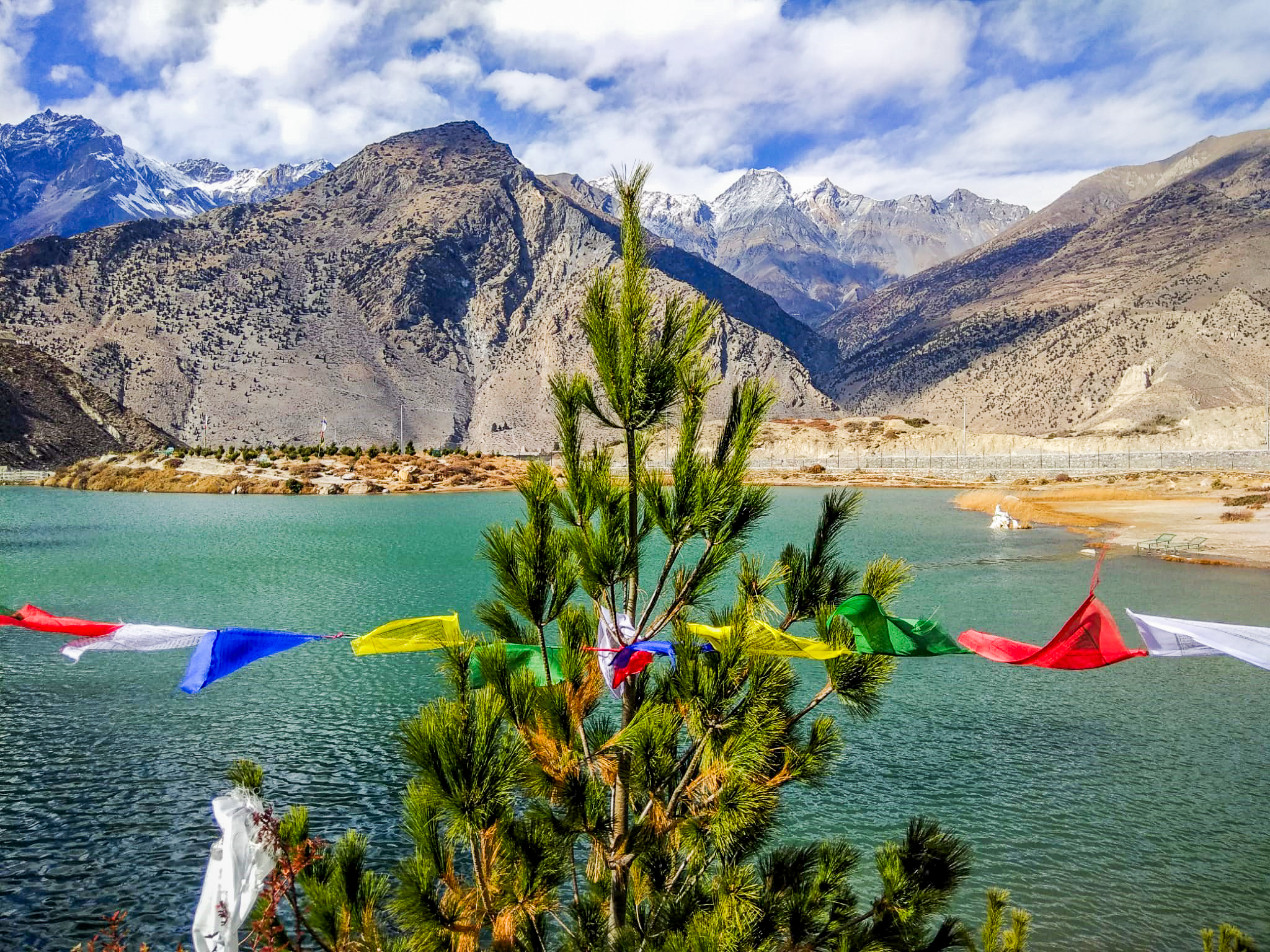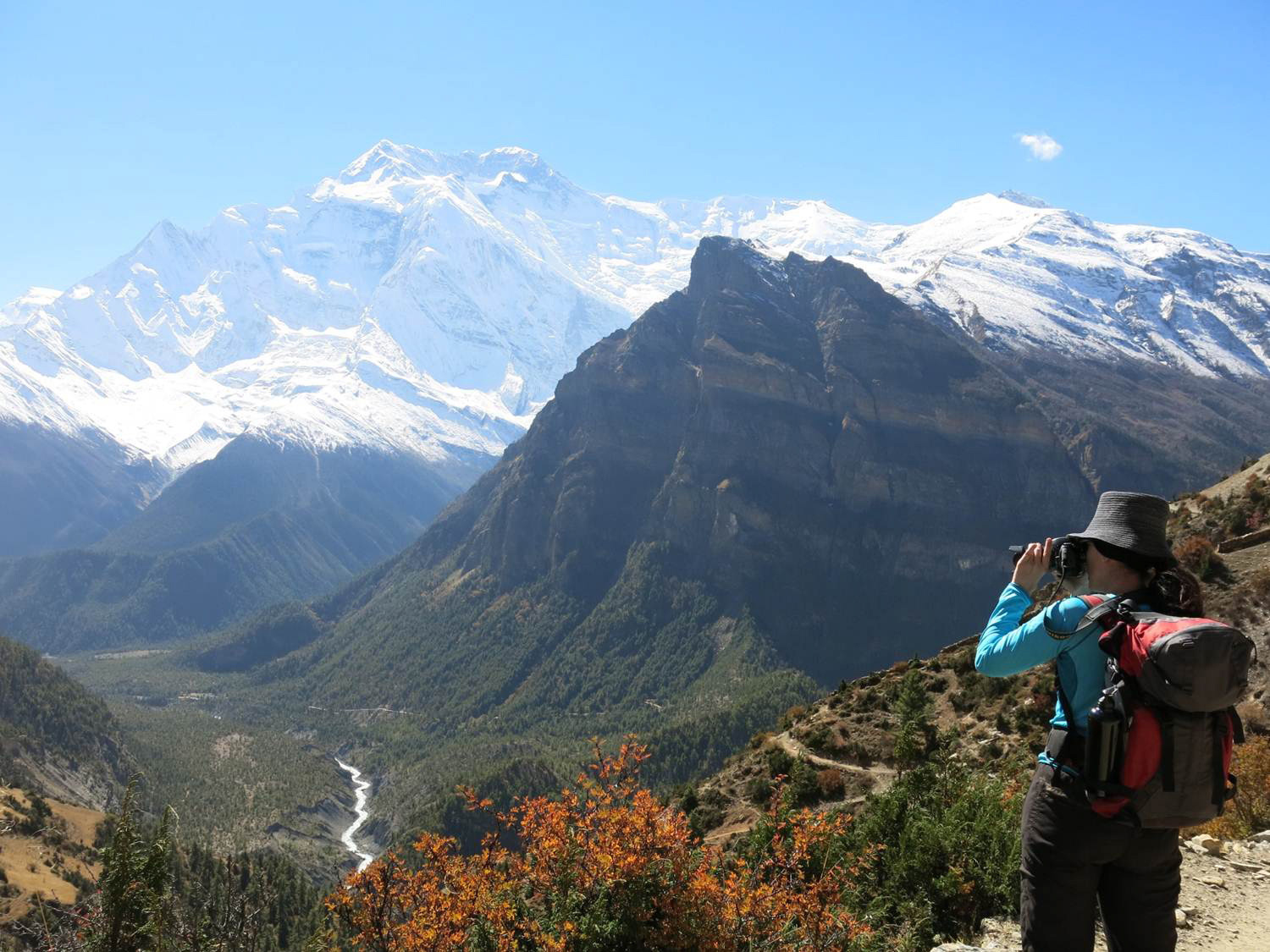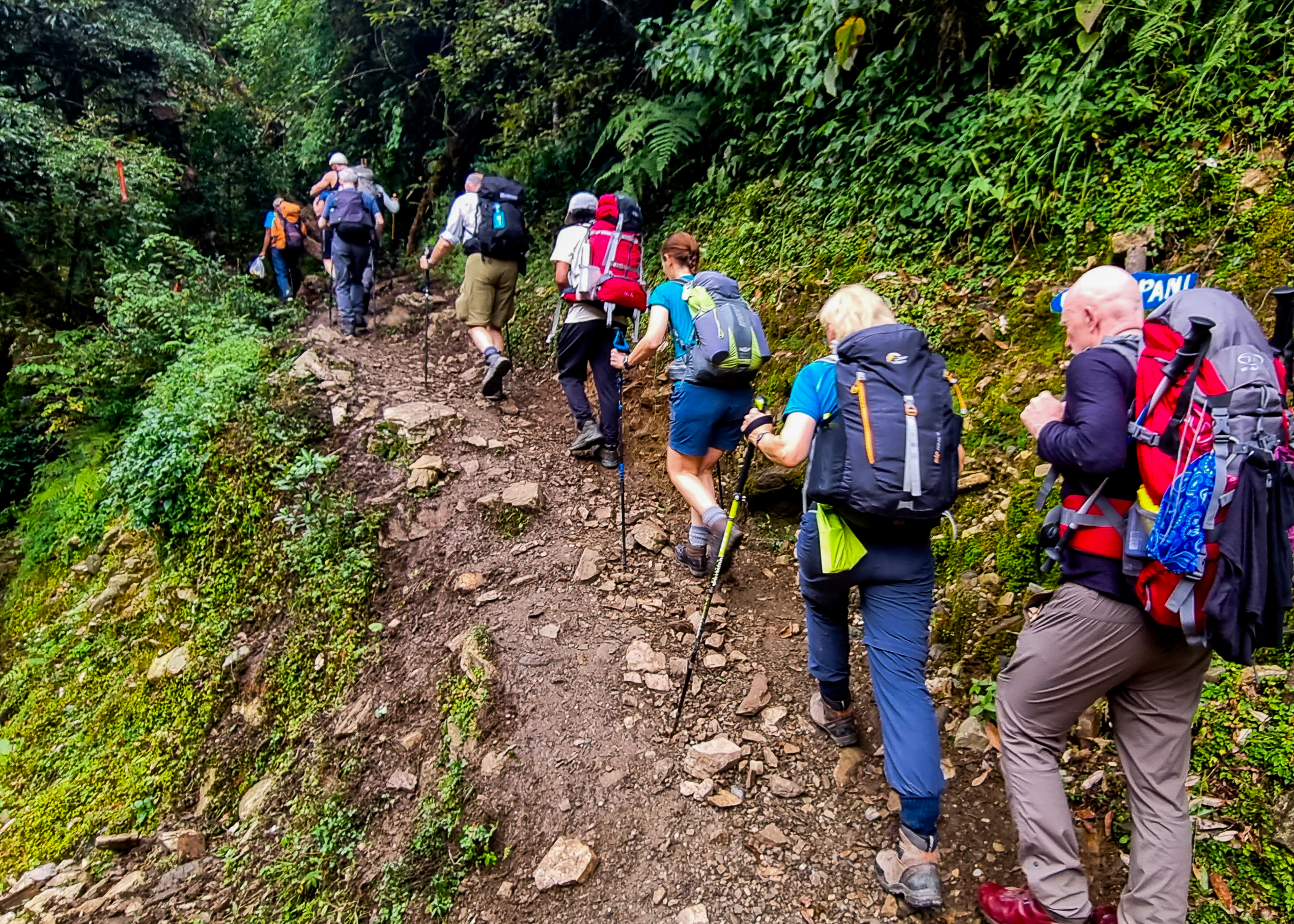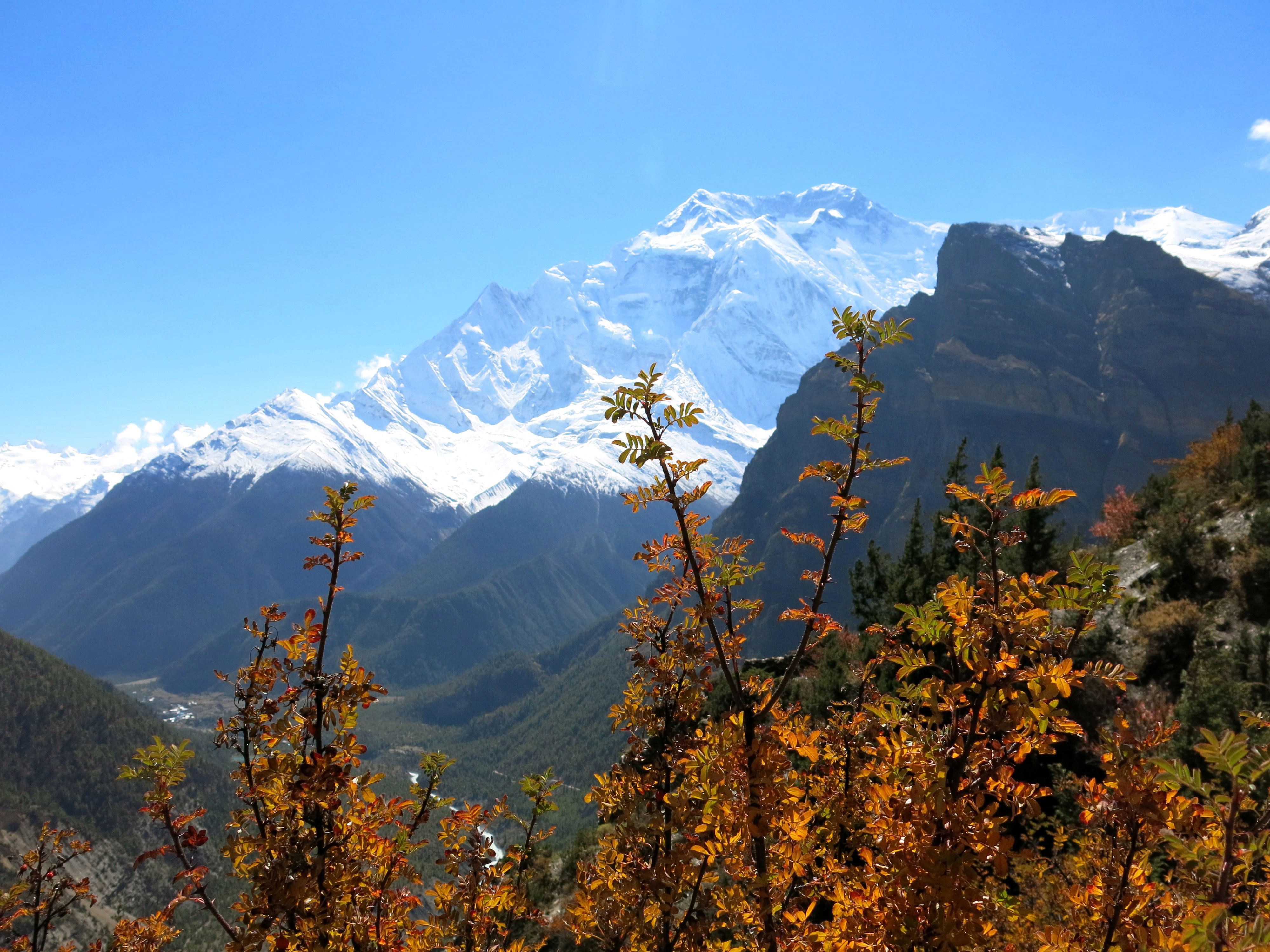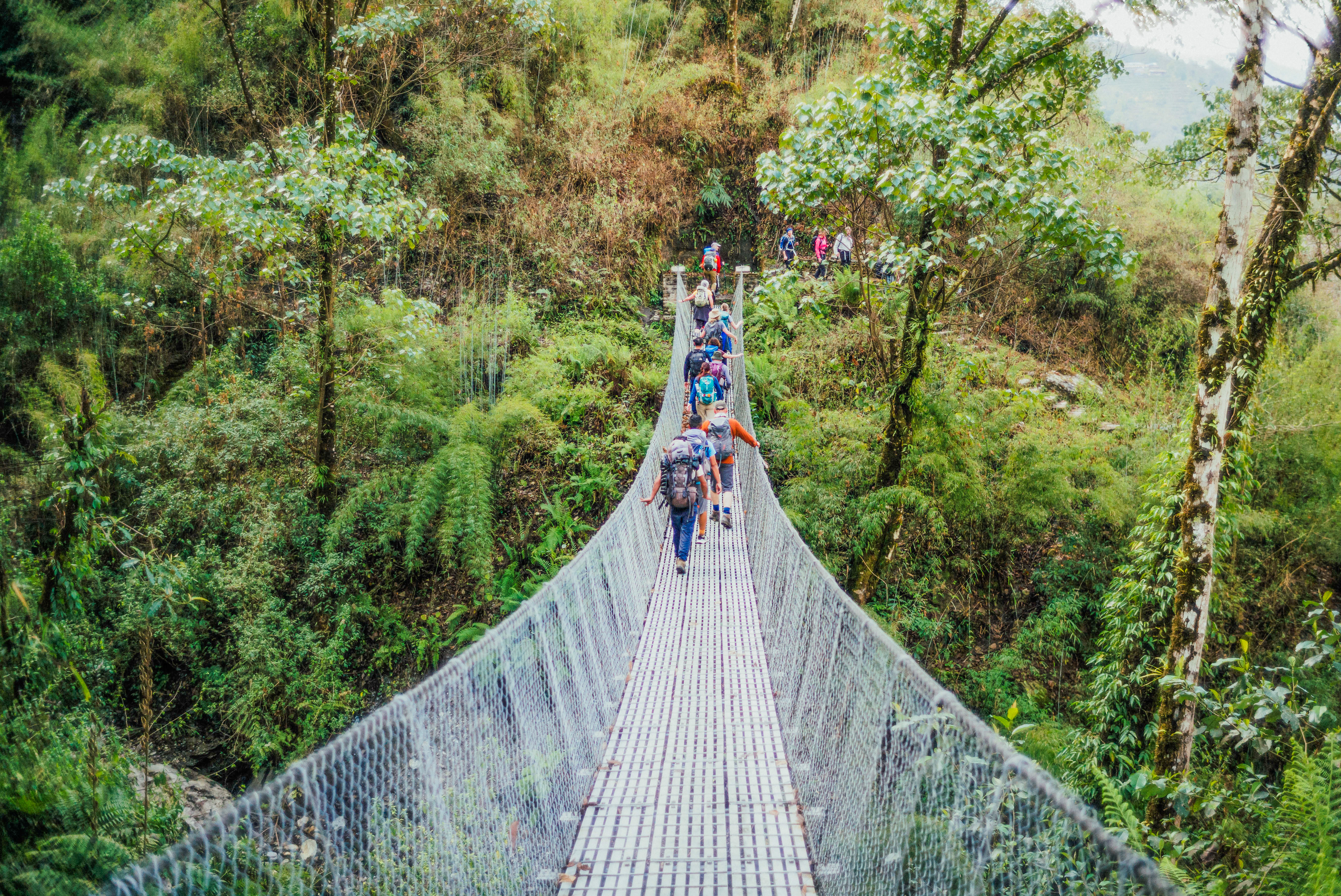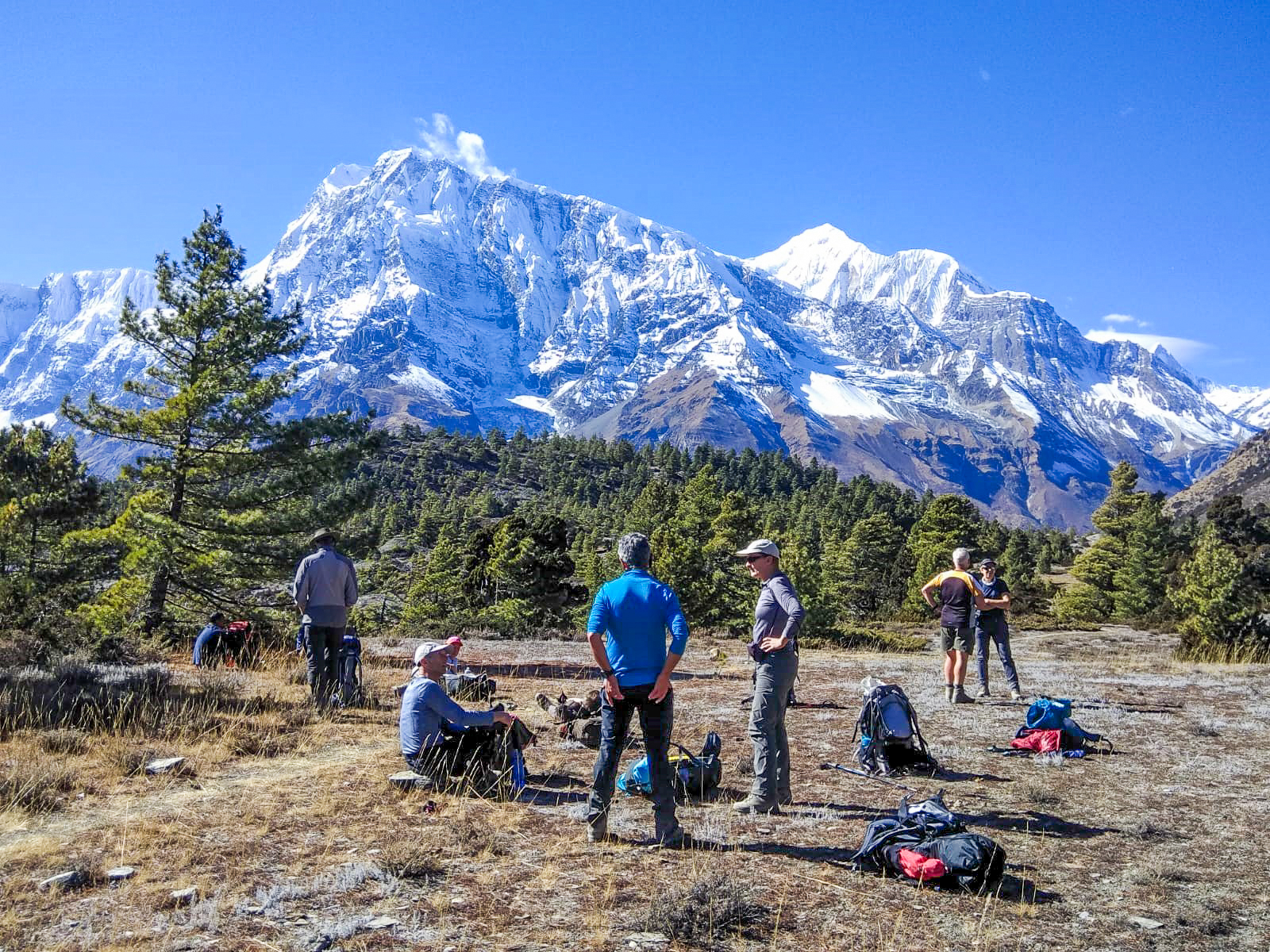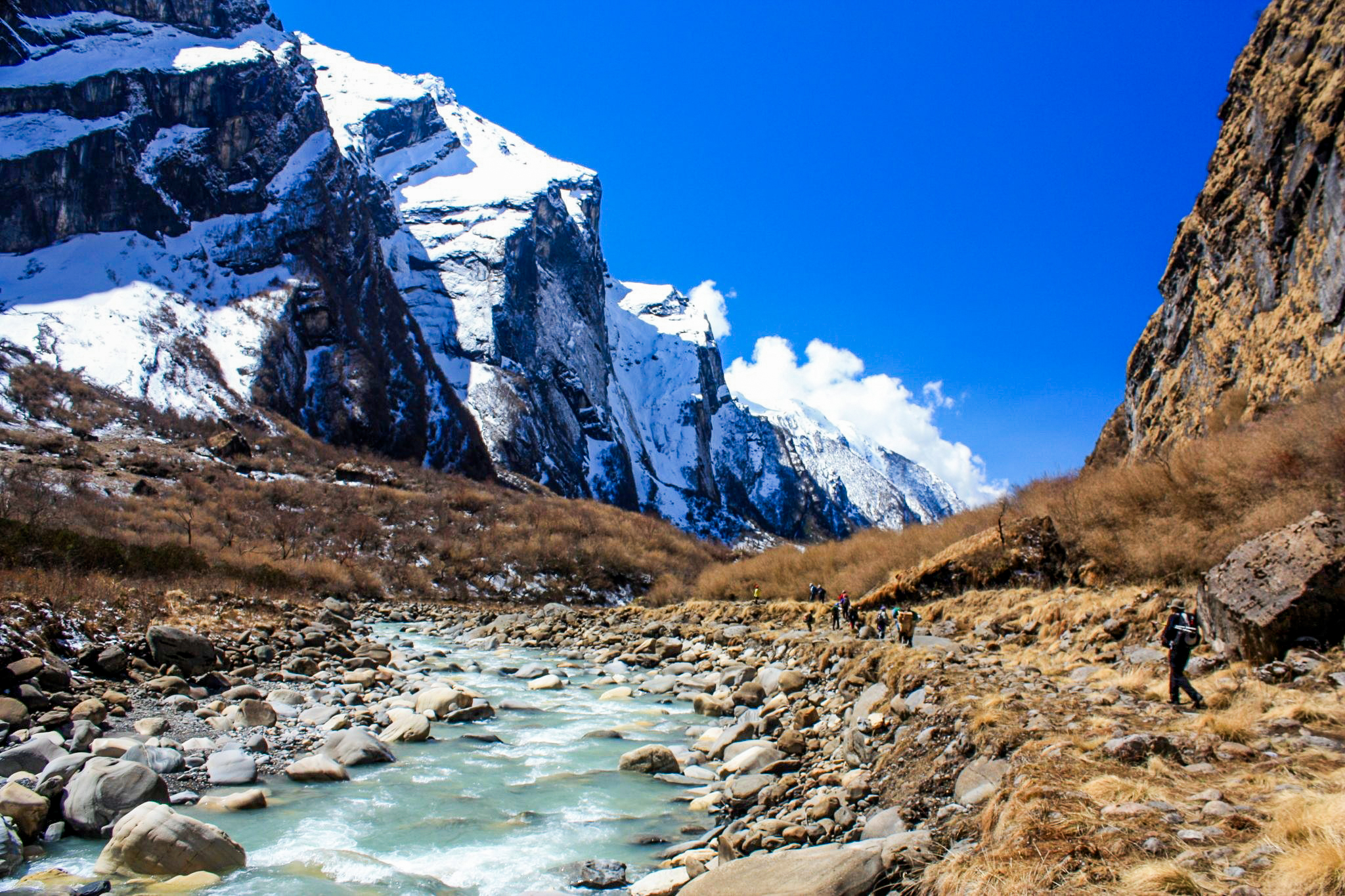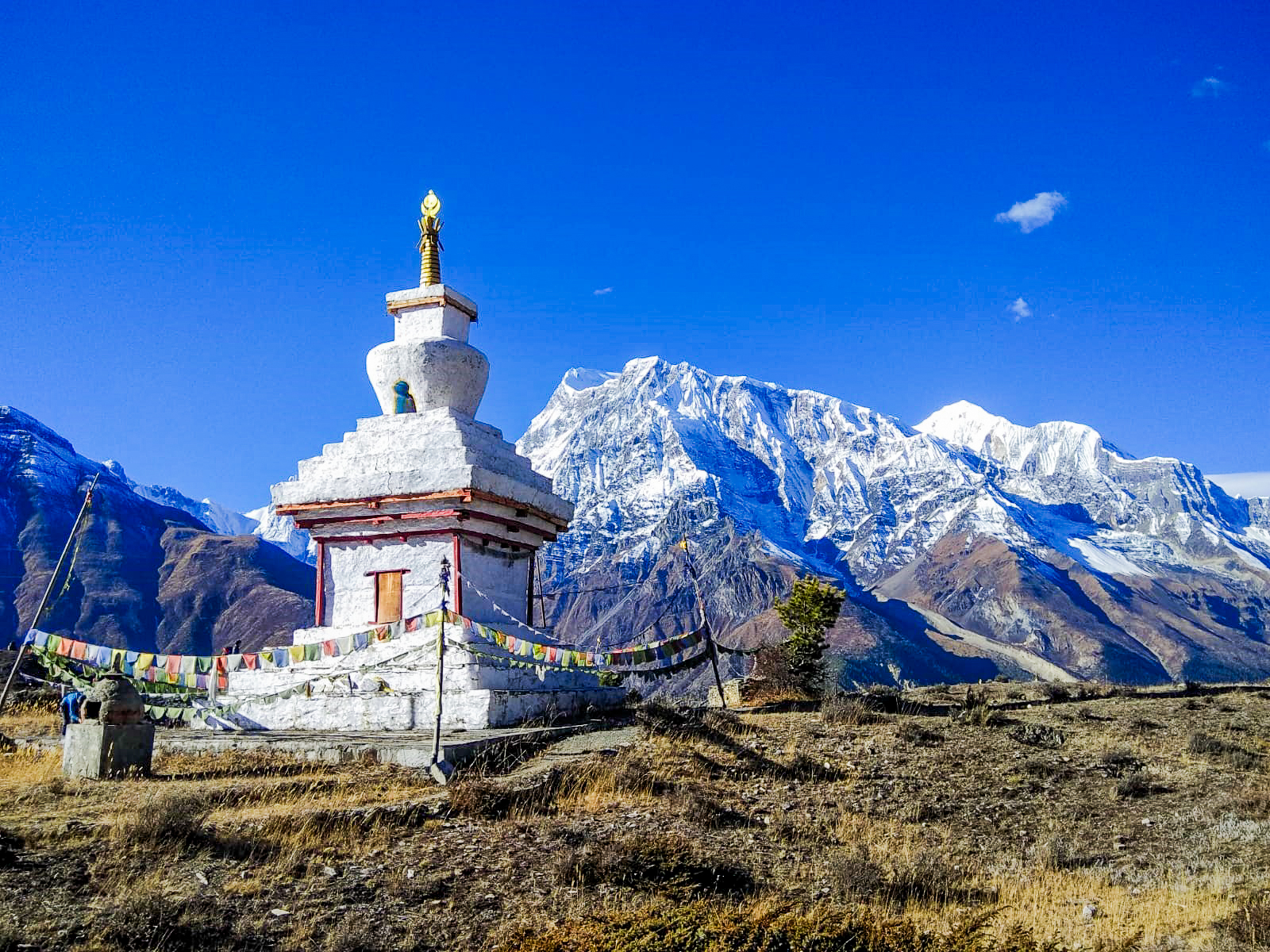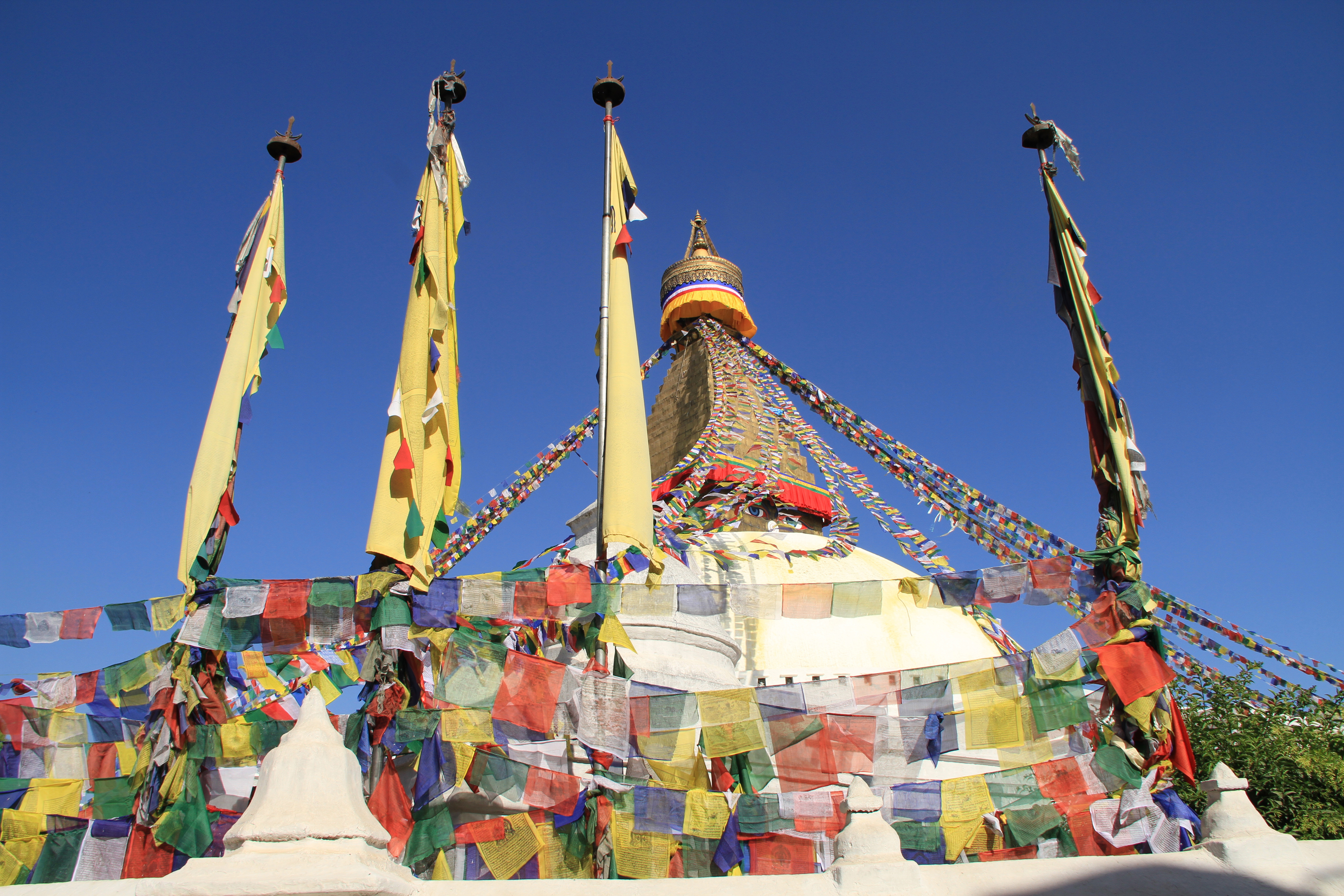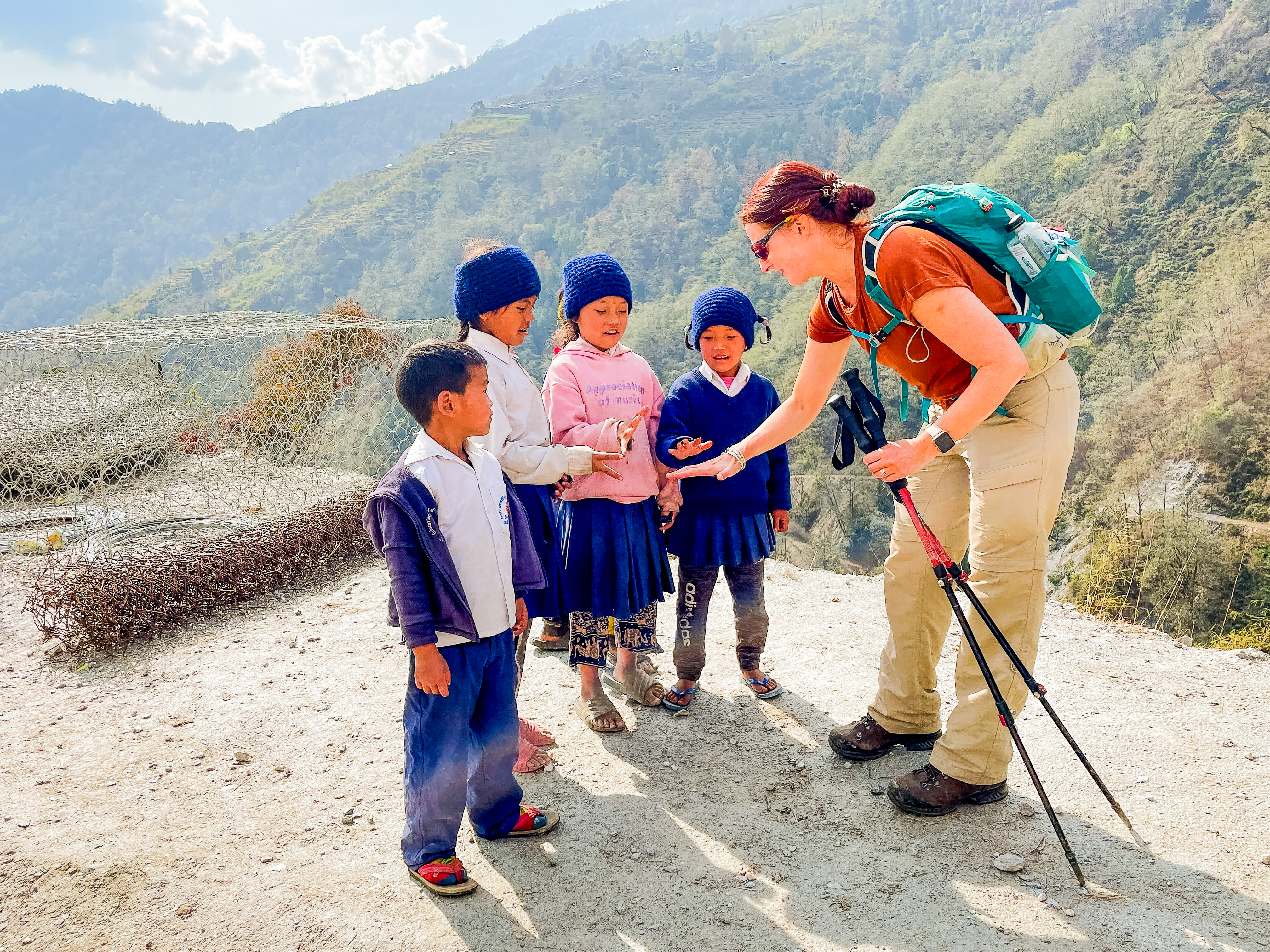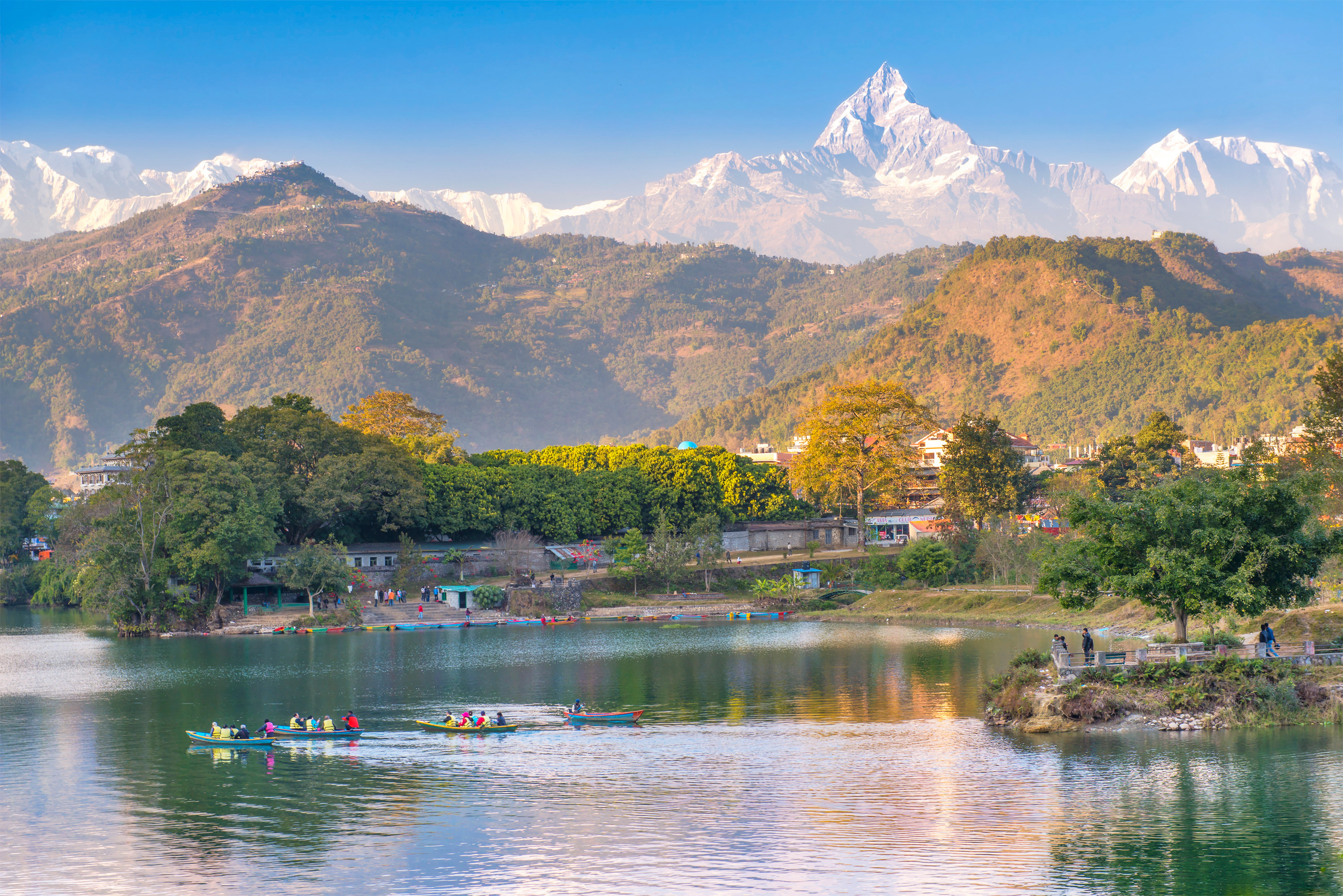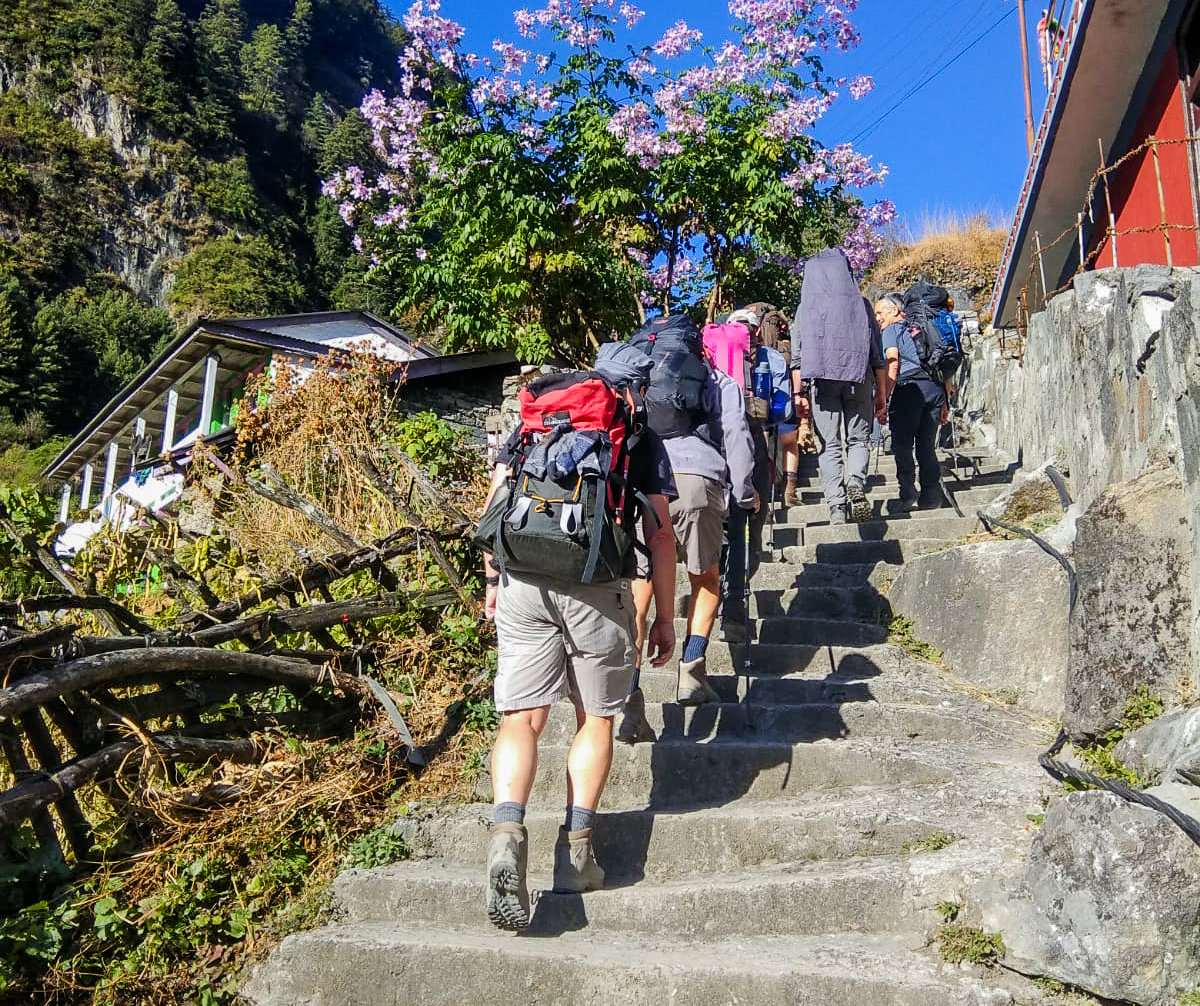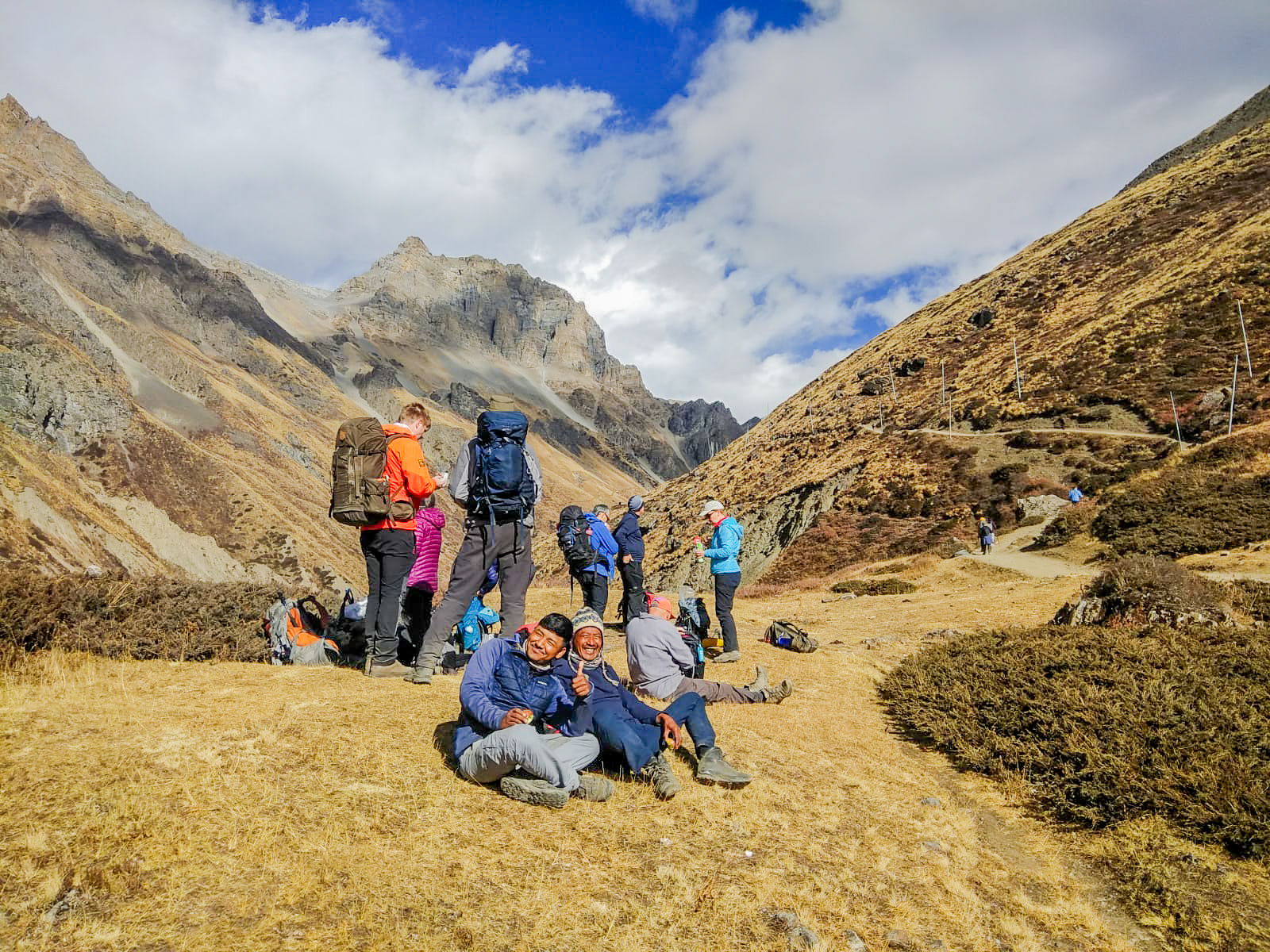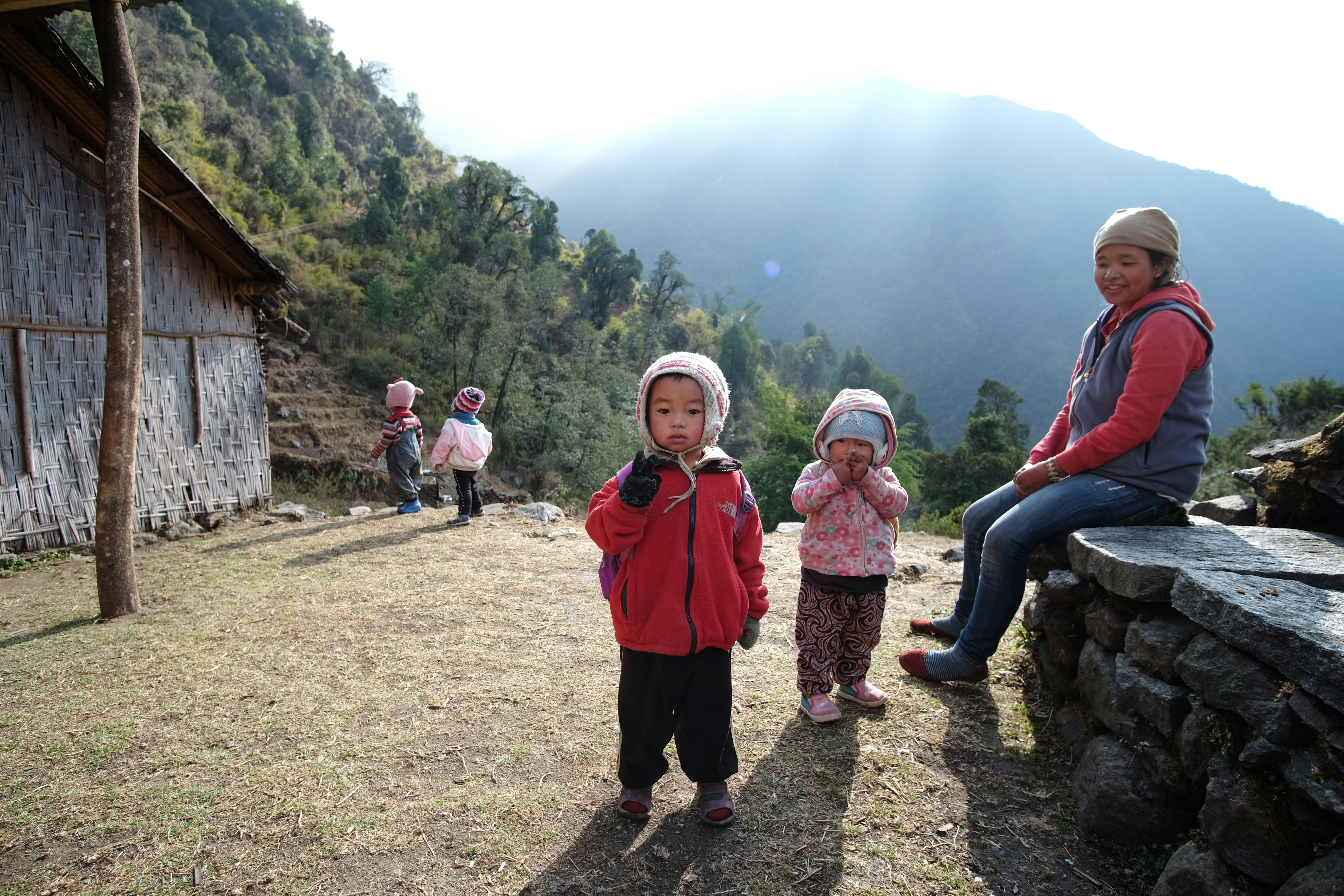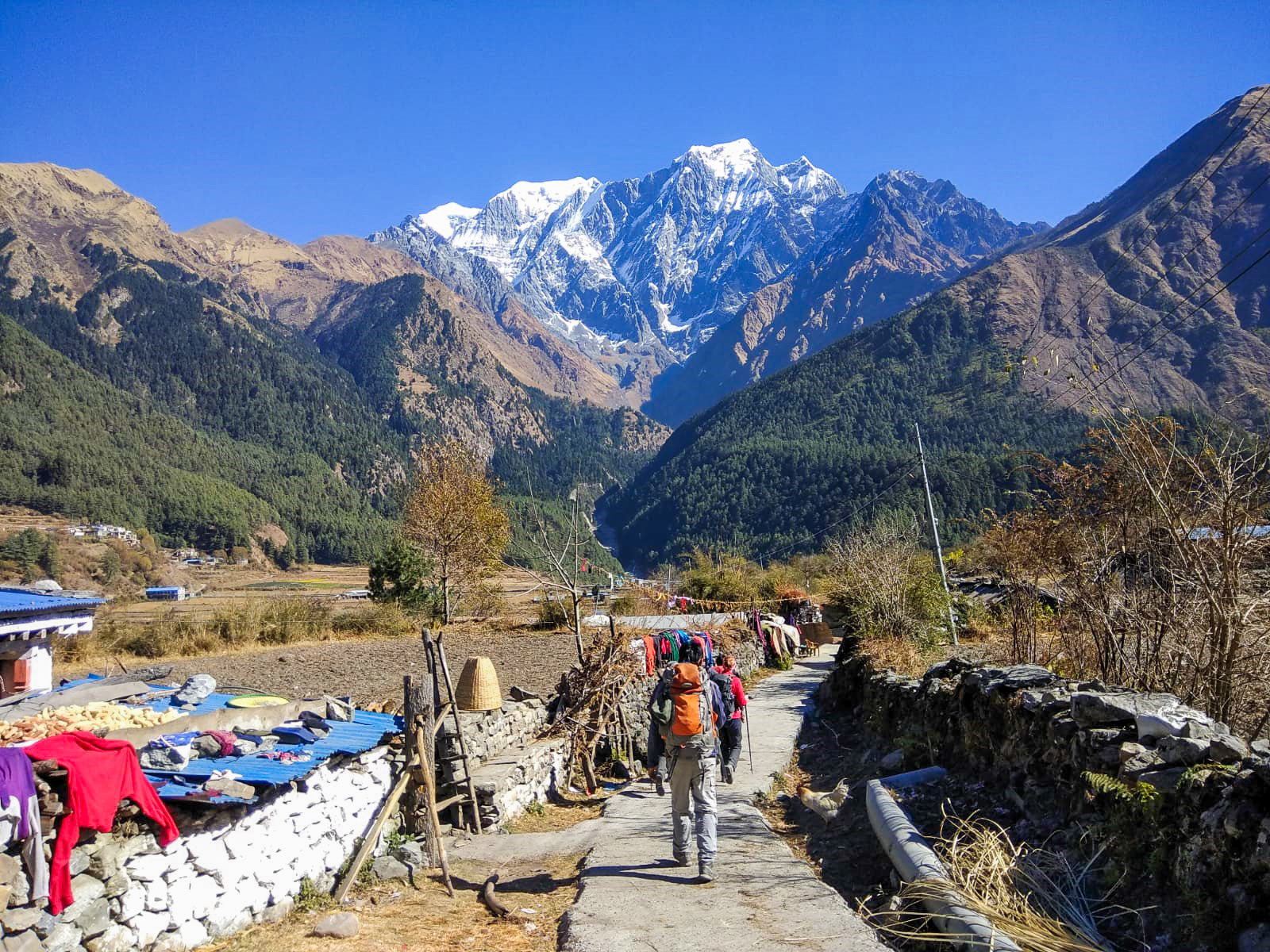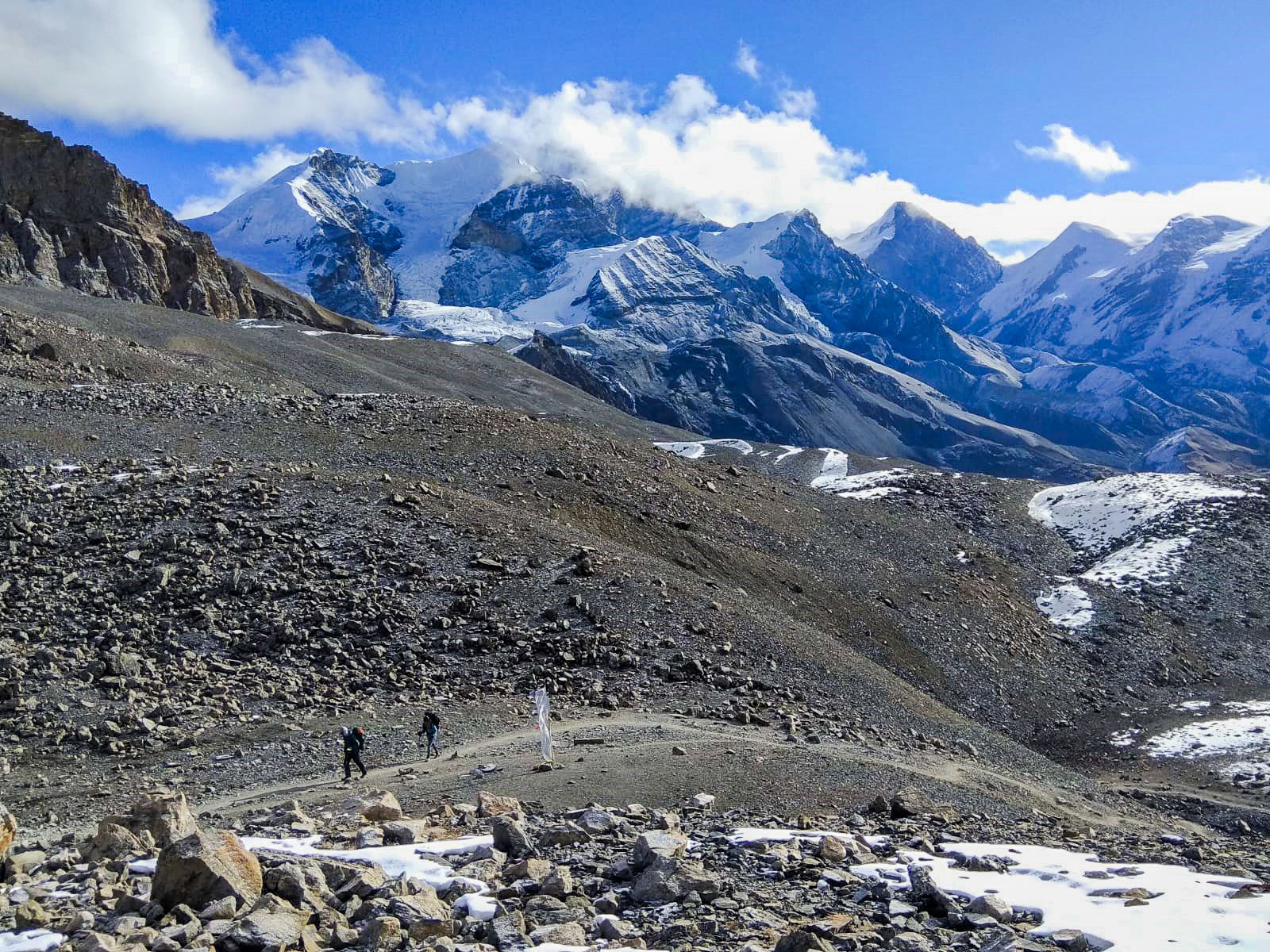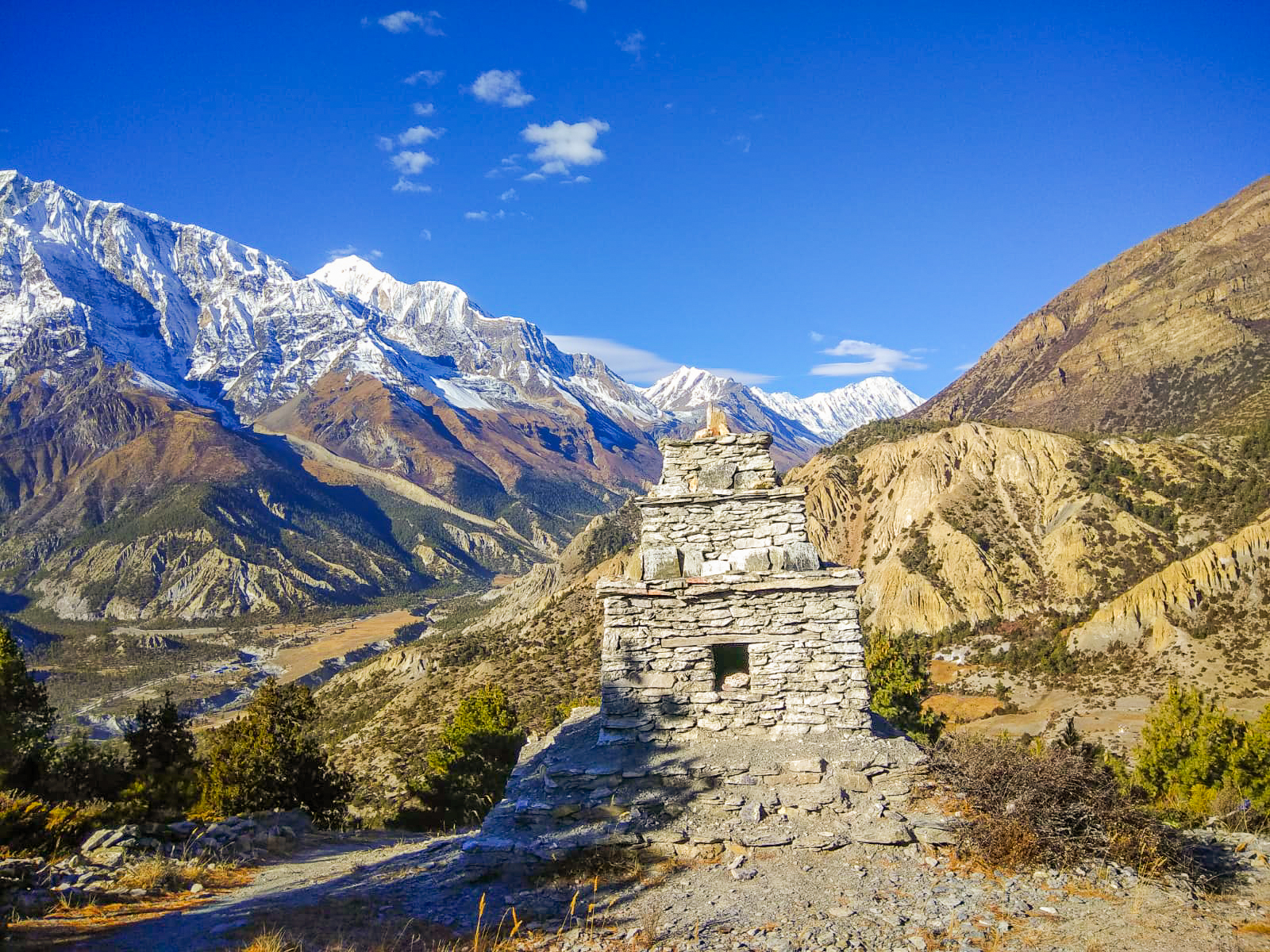Annapurna Circuit
Annapurna Circuit
$2998
Tour Overview
The Annapurna Circuit – considered the classic trek in Nepal – is legendary in the hiking community for its unrivalled variety of landscapes. However, few trekking trips complete the route, often skipping the final leg, which means missing out on deserted trails and unforgettable nights in quiet teahouses. We just couldn’t do that. Join us to tackle the full lap, enjoying superb views of the Annapurna and Dhaulagiri mountains and the ever-changing scenery. Based in teahouses throughout, we spend time in villages inhabited by many of Nepal’s different peoples, both Buddhist and Hindu.
Why trek with Exodus?
One of the highest staff-to-traveller ratios on the trek with one staff member to every four travellers
More than 30 years’ experience organising treks in Nepal
A carefully designed itinerary to minimise long road journeys and maximise comfort and ascent rates on the trails
Exodus annually commissions independent air-safety audits on domestic carriers in Nepal and only use those approved as part of the audit
Experienced English-speaking local leaders who are qualified in first aid and trained to recognise and deal with altitude sickness
All staff (leaders, guides and porters) are fully insured and paid a fair wage
Staff carry oxygen, a first-aid kit, and self-assessment acute mountain sickness cards, used to monitor every traveller at altitude
Speak to Exodus office staff who have done the trek themselves ...more ...less
Highlights
Itinerary
Day 1 : Start Kathmandu
Location: Kathmandu
Accommodation: Hotel
Accommodation Name: Hotel Royal Singi (or similar)
The adventure begins in Kathmandu, the capital of Nepal. We gather at the hotel, where we have a full trek briefing this afternoon/evening. This is our first chance to meet as a group and for you to ask any questions you may have.
Accommodation: Hotel Royal Singi (or similar)
Day 2 : A long but scenic drive to Syange via Besisahar
Location: Syange
Accommodation: Hotel
Accommodation Name: Teahouse (sleeping altitude
Meals Included: Breakfast
We leave Kathmandu early morning and drive towards Pokhara. Leaving the Kathmandu Valley, we follow the river to Mugling until we arrive at Besisahar. From Besisahar, we change to a high-clearance local bus (due to rough road conditions) and continue onto Syange for our overnight stay before we start our trek tomorrow. The total drive time can vary depending on road conditions and traffic but is approximately nine to ten hours.
Accommodation: Teahouse (sleeping altitude: 4,133t/1,260m)
Day 3 : Visit Tallo Chiple village and cross the Marsyangdi Valley to Jagat
Location: Jagat
Accommodation: Hotel
Accommodation Name: Teahouse (sleeping altitude
Meals Included: Breakfast
We start our trek today with a short but scenic walk. Our trail crosses the river at Syange by bridge. We climb up through Germu and follow an undulating trail through farmland to Tallo Chiple, where we stop for a tea break. The trail then descends to cross a suspension bridge, from where we have a steep climb towards Maththillo Chipla.
The trail contours round the hillside and we then have a steep descent to the Marsyangdi River, which we cross by a suspension bridge. Walking steeply uphill for approximately 20 minutes, we rejoin the main trail at the village of Jagat, where we spend the night. We arrive in Jagat around lunchtime and the afternoon is free to explore the area. Down by the river are some hot springs!
Accommodation: Teahouse (sleeping altitude: 4,265ft/1,300m)
Day 4 : Reach the village of Dharapani
Location: Dharapani
Accommodation: Hotel
Accommodation Name: Teahouse (sleeping altitude
Meals Included: Breakfast
Immediately after leaving the lodge, a small, old trail turns off the road up to the left and undulates through forest and farmland all the way to Chyamje, after which we cross a suspension bridge and climb through oak forest. An undulating ascent brings us to a level valley where Tal, the next village, is situated at the foot of a grand waterfall (5,580ft/1,700m). From Tal, we cross the river and climb up to a jeep track which we follow to Dharapani.
Accommodation: Teahouse (sleeping altitude: 6,200ft/1,890m)
Day 5 : Visit Odar village. Climb to Temang, then descend to Chame
Location: Chame
Accommodation: Hotel
Accommodation Name: Teahouse (sleeping altitude
Meals Included: Breakfast
Beyond Dharapani, we leave the jeep trail and turn sharply up to the left and have a steep 40 minute climb up a stone staircase to the pretty village of Odar. Passing traditional farms and homesteads, we trek through Galenchowk before descending to the main trail at Bagarchap at 7,100ft (2,164m). The name of this village means ‘butcher’s place’ and, although Buddhist, the people of this region used to hunt animals.
Continuing, we follow the jeep track for a short while past apple orchards to Dhanagyu. From here, we turn sharply up into the forest and have a fairly long climb to Temang, where we have lunch with magnificent views of Manaslu and Peak 29. The trail then descends through fir and pine forests to Thanchowk and further on through Koto to Chame (8,900ft/2,713m), the administrative centre of the Manang district.
Accommodation: Teahouse (sleeping altitude: 8,860ft/2,700m)
Day 6 : Continue ascending through forested hillsides past the rock face of Paungdi Danda to Upper Pisang
Location: Upper Pisang
Accommodation: Hotel
Accommodation Name: Teahouse (sleeping altitude
Meals Included: Breakfast
We now experience a dramatic change of scenery. Leaving the forests and vegetation of the alpine regions, we enter the upper district of Manang, known as Nyeshang. At first, our trail follows the river closely through a deep canyon on the jeep track for a couple of hours to Brathang (9,577ft/2,919m) where there is now a large apple plantation. We can stop for fresh coffee and cakes (and maybe some fresh apple juice) before we begin our climb this morning. The trail then crosses the river and leaves the jeep track to climb on forest trails through fir and pine trees. Here, the curved rockface of Paungda Danda rises nearly 4,920ft (1,500m) from the riverbank to Dukha Pokhari, where we stop for lunch.
Next, we veer off to the right and take the trail that climbs away from the road track and to Upper Pisang village, where we stay in a lodge for the night. There is an impressive monastery in the village, which we can visit in the afternoon. From here to the pass, we are the closest we will be to the mountains and today the views of Annapurna II are particularly impressive (weather permitting).
Accommodation: Teahouse (sleeping altitude: 10,825ft/3,300m)
Day 7 : Climb high above the valley on a wonderful high trail to Ngawal; afternoon acclimatisation walk
Location: Ngawal
Accommodation: Hotel
Accommodation Name: Teahouse (sleeping altitude
Meals Included: Breakfast
We have a shorter but spectacular day for acclimatisation. From Upper Pisang, we take the fantastic high-level route towards Manang via the villages of Gyaru and Ngawal. This is a wonderful walk with great views across to the Annapurnas. We start with a short descent through the forest to a small green lake and then have a very steep climb up to Gyaru for a tea break. The views across the valley become more spectacular the higher we go. From here, the trail undulates high above the river with magnificent views across the Annapurnas to Ngawal, where we stay tonight. After lunch at our lodge we can explore this pretty medieval village and also have the option for a 6km acclimatisation walk up above the village to a small shrine and cave (approximately two and a half hours) ascending 420m.
Accommodation: Teahouse (sleeping altitude: 11,975ft/3,650m)
Day 8 : Follow the high trail from Ngawal via Julu to Braga; afternoon acclimatisation walk
Location: Braga
Accommodation: Hotel
Accommodation Name: Teahouse (sleeping altitude
Meals Included: Breakfast
We have another half day for acclimatisation. From Ngawal, we take a spectacular high trail, which contours high above the valley with amazing views across to the Annapurnas and Gangapurna. As we leave Ngawal village, we pass a large chorten (Tibetan Buddhist shrine) before the trail drops to Julu village. We take the route that climbs steeply out of Julu onto a wonderful high trail above the valley. The trail climbs to a plateau and we contour through forests with great views across the valley to the Annapurnas and Gangapurna. The trail drops down to the pretty village of Braga, which is dominated by a large ancient gompa.
We stop here for the night and in the afternoon there will be the option for an additional acclimatisation walk exploring the village. We also visit the 500-year-old gompa.
Accommodation: Teahouse (sleeping altitude: 11,285ft/3,440m)
Day 9 : Trek to Yak Kharka.
Location: Yak Kharka
Accommodation: Hotel
Accommodation Name: Teahouse (sleeping altitude
Meals Included: Breakfast
Leaving Braga, it’s a 1.2mi (2km) walk on the main trail to Manang village, passing beautifully carved mani (prayer) walls as we head towards the base of the Thorong La. We will stop at Manang for a short while, there are shops and bakeries here giving you the chance to pick up some snacks for the day or treat yourself to apple pie and a coffee. We climb out of the Marsyangdi Valley and turn northwest up the valley of the Jarsang Khola. Looking back, we enjoy ever-more spectacular views as we are above the forests and pass through dry, alpine country, with scrub juniper and occasional clumps of birch. We stop at Gunsang for a light lunch before continuing up the valley.
We spend tonight at a lodge in Yak Kharka. Look out for the blue sheep that inhabit this cold, windy spot. For the energetic, this afternoon we can take an additional walk into the hills behind the lodge.
Accommodation: Teahouse (sleeping altitude: 13,125ft/4,000m)
Day 10 : Short half-day walk to Phedi, at the foot of the Thorong La
Location: Phedi
Accommodation: Hotel
Accommodation Name: Teahouse (sleeping altitude
Meals Included: Breakfast
A short day to aid acclimatisation. The scenery becomes wilder as we continue ascending the valley. At one point, we descend to cross the Jarsang Khola, then traverse a scree slope to the lone teahouses at Phedi at the foot of the Thorong La. Thorong Phedi can be very cold and windy. In the afternoon, we can go for a walk up to Thorong High Camp, which is the last lodge and is about an hour above Phedi.
Accommodation: Teahouse (sleeping altitude: 14,500ft/4,420m)
Day 11 : Cross the Thorong La to Muktinath, a place of pilgrimage
Location: Thorong La
Accommodation: Hotel
Accommodation Name: Teahouse (sleeping altitude
Meals Included: Breakfast
We have a very long day as we leave Phedi very early in the morning for the climb to the pass. The first part of the ascent is very steep, but it eases somewhat as we approach the top, although the altitude still makes the going tough. Eventually, after numerous false summits, we reach the pass itself at 17,769ft (5,416m). Ahead there is a magnificent panorama of snow-capped peaks soaring above the Kali Gandaki Valley looking towards Dolpo and Mustang; looking back, we can see several of the main Annapurna peaks. Directly in front of us is the great chasm of the Kali Gandaki (8,200ft/2,500m). It’s a very long descent that begins gently and becomes steeper, as we follow a series of switchbacks down to more grassy slopes. We stop for lunch at Phedi, where there are a few teahouses. From Phedi, it’s another hour and a half of gentle descent to Muktinath. We can visit the local famous temples on the way to our lodge.
Please note, conditions on the pass vary. It can be calm and clear with no snow but there can also be snow and ice and high winds on the pass. We recommend you carry Yaktrax or microspikes in case of snow or ice and take enough warm layers in case of high winds.
Accommodation: Teahouse (sleeping altitude: 12,140ft/3,700m)
Day 12 : Trek through beautiful barren landscapes to Kagbeni
Location: Kagbeni
Accommodation: Hotel
Accommodation Name: Teahouse (sleeping altitude
Meals Included: Breakfast
An easier day after the exertions of yesterday. From Muktinath, we pass through a landscape of bare, eroded hills with a backdrop of snow-capped high peaks. We cross the Jhong Khola and climb up to Chongur, a small traditional village. The monastery was founded by a Sakya monk and the whole village is painted with the colours of the Sakya sect. Continuing along a mixture of trekking trails and jeep tracks, we come to Jhong, another beautiful village. There is a monastery here dating to the seventh or eighth century and the ruins of an old fortress. Passing wind-eroded cliffs in an array of beautiful colours, we continue down the valley through Putak village and finally have a steep descent into the Kali Gandakhi Valley and the interesting village of Kagbeni. We have a long morning today (so take some snacks) and have a late lunch in Kagbeni.
There is time in the afternoon to explore this magical place. With narrow lanes and tunnels between the houses, it has an almost medieval feel.
Please note, in the event we are delayed due to bad weather, this day will be missed out and we trek directly from Muktinath to Marpha.
Accommodation: Teahouse (sleeping altitude: 9,185ft/2,800m)
Day 13 : Follow the Kali Gandaki Gorge, beneath the great peaks of Dhaulagiri and Annapurna via Dumba Lake to Marpha
Location: Marpha
Accommodation: Hotel
Accommodation Name: Teahouse (sleeping altitude
Meals Included: Breakfast
The trail now follows the jeep track down the Kali Gandaki River to the outskirts of Jomsom, a large administrative centre at 8,900ft (2,713m). Depending on the seasonal weather, at certain times of the year when the river level is low, we can walk along the rocky riverbed. We do not cross the river into Jomsom but, instead, stay on the left side of the valley and trek to the village of Thini, where we stop for a tea break. From here, it is about 30 minutes to the very small Dumba Lake, which is considered holy by the local Thakali people. A short climb brings us to Dumba Gompa for magnificent views of the Kali Gandaki Valley, Dhaulagiri and Tukuche Peak. From the gompa, we have two trails – the shorter one descends through Dumba village to the suspension bridge across the Kali Gandaki to Marpha. Another longer trail continues on the same side of the river towards the Tibetan refugee camp of Chairo. A bridge crossing the Kali Gandaki takes us to the pretty village of Marpha with its clean paved streets and white-washed houses. Marpha is famous for its locally made apple and peach brandy, which you might like to sample to celebrate your crossing of the Thorong La.
Accommodation: Teahouse (sleeping altitude: 8,825ft/2,690m)
Day 14 : Continue following the Kali Gandaki Valley to Larjung
Location: Larjung
Accommodation: Hotel
Accommodation Name: Teahouse (sleeping altitude
Meals Included: Breakfast
Today we follow the Kali Gandaki Valley, a major trade route. We are now in the deepest gorge in the world; to the east, Annapurna I rises to 26,545ft (8,091m), to the west, Dhaulagiri soars above us at 26,795ft (8,167m). Leaving the dry, barren landscapes, we walk through pine, cypress and juniper forest, sometimes on the valley floor and at other times on a trail high above. From Marpha, we cross back over the Kali Gandaki to avoid the road. Walking through fir and pine forests, we climb up to the pretty Thakali village of Chimang. Descending to a side stream, we follow the side valley down for a short while before climbing again into the forest. We ascend for about an hour and then the trail undulates for a while before descending to the valley floor at Sauru. We stop here for a break and then cross the Kali Gandaki to Kobang and onto Larjung. We stay tonight in a lodge. In the afternoon, we walk up to Naurikot, another traditional Thakali village, for sunset views across the valley on Niligiri.
Accommodation: Teahouse (sleeping altitude: 8,365ft/2,550m)
Day 15 : Cross the Kali Gandaki and trek through Titi Tal, Kunjo to Ghasa
Location: Ghasa
Accommodation: Hotel
Accommodation Name: Teahouse (sleeping altitude
Meals Included: Breakfast
From our lodge we cross the Kali Gandaki to Sirkung. It's then an easy climb up through the forest to Titi Tal, a very small lake (pond) but an important marsh zone for waterbirds in the Mustang area. We follow the trail through Taglung to Kunjo, where we have a simple Nepali lunch. After lunch we descend steeply through the forest to a rocky riverbed. Crossing a suspension bridge, we have a gradual climb up to Jhipre Deurali. The trail then descends to cross the Kali Gandaki where we join the road. We have approximately one hour of road walking until we reach the start of the trail to Ghasa. We leave the road and walk through the old part of Ghasa to reach our lodge for the evening.
Accommodation: Teahouse (sleeping altitude: 6,400ft/1,950m)
Day 16 : Follow an undulating trail through small settlements to Tatopani, famous for its hot springs
Location: Tatopani
Accommodation: Hotel
Accommodation Name: Teahouse (sleeping altitude
Meals Included: Breakfast
From Ghasa, we follow the road for 30 minutes and then cross the river on a suspension bridge. The trail now climbs high above the river to Pairothaplo and then descends to Kopchepani. Across the river, we can see the huge waterfall at Rupse Chhara. We continue on the same side of the river and follow the rollercoaster trail up and down all morning. We have lunch in the small village of Narcheng before continuing past a hydroelectric project just before Tatopani. A suspension bridge brings us right into Tatopani, where we spend the night. Tatopani means ‘hot water’ and is famous for its hot springs just below the village. There is time in the late afternoon to enjoy a welcome soak – guaranteed to ease any aching limbs!
Accommodation: Teahouse (sleeping altitude: 4,100ft/1,250m)
Day 17 : A long climb up through the villages of Ghara, Shika and Chitre to Ghorepani
Location: Ghode Pani
Accommodation: Hotel
Accommodation Name: Teahouse (sleeping altitude
Meals Included: Breakfast
The last stage of the trek takes us over a high ridge to the end of the route. Today is a sting in the tail as we have a long climb to Ghorepani. We climb all day through small hamlets and terraced fields, starting with a short descent on the road track for 45 minutes to a couple of bridges. From the second bridge, we have 30 minutes along a track and then the trail starts climbing on a series of stone staircases. It’s fairly steep up to Durbin Danda from where we have a short descent through Ghara. We then mostly follow the old trail as it climbs up through the villages of Shika and Chitre. From Chitre, we enter a huge rhododendron forest and the last couple of hours takes us up to Ghorepani. Meaning ‘horse water’, Ghorepani was once a stopping place for the huge mule trains that used to ply this route. As we climb today, the mountains start to appear and from Ghorepani we get fabulous views of the Annapurnas from the lodge.
Accommodation: Teahouse (sleeping altitude: 9,515ft/2,900m)
Day 18 : Optional early morning walk up Poon Hill for sunrise before a long descent to Birethanthi
Location: Poon Hill
Accommodation: Hotel
Accommodation Name: Teahouse (sleeping altitude
Meals Included: Breakfast
There’s an optional early start for those who want to climb Poon Hill for sunrise (approximately two hours’ return trip including stops – in addition to the 7hr 30min walking to Birethanthi). The effort is well worth the 1,015ft (310m) climb (again, in addition to the 1,050ft/320m of total ascent today) for the superb views over the Annapurnas, Dhaulagiri and Machhapuchhare. We return to our lodge for breakfast and then it’s all downhill through the forest to Banthanti and then down a stone staircase through Ulleri and Tirkhedunga to Birethanti by the Modi Khola, where we stay in a very modest lodge.
Accommodation: Teahouse (sleeping altitude: 3,360ft/1,025m)
Day 19 : Short walk to Naya Pul and drive to Pokhara; afternoon free
Location: Pokhara
Accommodation: Hotel
Accommodation Name: Hotel Lakefront/Hotel Dahlia (or similar)
Meals Included: Breakfast
From Birethanti, it is a very short walk to Naya Pul, where we pick up transport back to Pokhara. We usually arrive by lunchtime and have the afternoon to explore this pretty lakeside town.Accommodation: Hotel Kausi (or similar)
Day 20 : Free day in Pokhara
Location: Pokhara
Accommodation: Hotel
Accommodation Name: Hotel Lakefront/Hotel Dahlia (or similar)
Meals Included: Breakfast
We have the whole day in Pokhara. There are many options to choose from today. You might want to hire a bike and cycle around part of the lake or you could take a boat across the lake and walk up to the Japanese Peace Pagoda with great views of the mountains and the lake (from the pagoda, carry on up the ridge to Raniban Resort for lunch). Alternatively, visit the Mountaineering Museum, the Gurkha Museum, take a trip to the nearby Tibetan refugee settlement and craft centre, or simply relax in one of the many lakeside restaurants and stroll around the shops.Accommodation: Hotel Kausi (or similar)
Day 21 : Fly to Kathmandu
Location: Kathmandu
Accommodation: Hotel
Accommodation Name: Hotel Royal Singi (or similar)
Meals Included: Breakfast
We fly to Kathmandu. Weather depending, there should be good views on the flight.
Accommodation: Hotel Royal Singi (or similar)
Day 22 : End Kathmandu
Location: Kathmandu
Meals Included: Breakfast
The trip ends after breakfast and we begin our return journeys home, full of tales and memories to last a lifetime.
What's Included
-
All breakfasts
-
Morning bed-tea on trek
-
Welcome drink at each overnight lodge
-
Four nights in standard hotels and 17 nights teahouses
-
All transport and listed activities
-
Internal flight from Pokhara to Kathmandu
-
Tour leader throughout, plus local staff (staff to client ratio of 1:4 on trek)
-
Free arrival and departure transfers for everyone
-
Full porterage throughout trek
-
Exodus kitbag
What's Not Included
-
Travel insurance
-
Single accommodation (available on request from £90, Kathmandu and Pokhara only)
-
Visas and vaccinations
-
Sleeping bag (hire in advance from £84)
-
Down jacket (hire in advance from £63)
-
Hire package incl. down jacket and sleeping bag from £105
Accommodation
We stay in teahouses for most of this adventure, a classic experience for trekkers in the Himalaya. We spend the rest of our time in hotels. The accommodations we typically use are on the day-to-day itinerary; however, below are a few of the notable places we stay on this trip.
Kathmandu: Royal Singi Hotel (nights 1 and 21)
The Royal Singi, a three-star hotel, has been welcoming our groups for more than two decades. The name is inspired by the Snow Lion, a mythical creature in Tibetan Buddhism, which represents immense joy, positivity, delight and comfort. The hotel embraces the name with a restaurant, bar, outdoor courtyard, and complimentary wifi throughout. There’s also an Exodus desk in the lobby and an Exodus representative is usually available daily in the mornings and evenings. The Royal Singi is well located near the Thamel district, close to banks, restaurants, shops and attractions.
Annapurna: Teahouses (nights 2-18)
Staying in teahouses is a time-tested tradition for hikers in the Himalaya. They may be basic, but they’re a welcome sight after a day of walking among the spectacular peaks. The hub of teahouse living is the dining room, which is usually decorated with traditional rugs, sometimes with a stove or heater (some lodges charge a fee to put the heater on). Most teahouses sell snacks and other essentials such as tissues, soap and toilet paper.
For the majority of the trek, we stay in twin-share bedrooms, which come with foam mattresses, bedsheets and a pillow. Remember to bring (or hire) a sleeping bag, rooms are unheated so they can get cold at night.
Worth knowing
Some teahouses above 9,845ft (3,000m) may not be heated due to local environmental restrictions. Occasionally, kerosene burners can be used to heat common areas if requested. We recommend against using these due to the risk of carbon monoxide poisoning. Your leader will not offer this to you.
Some lodges are situated in an area controlled by the Annapurna Conservation Area Project. As part of their conservation efforts, there is a limit to the number of lodges available and therefore some of your stays will be in triple or quad shared (same-sex) rooms.
Most teahouses have electricity, but it is not wholly reliable, and lighting may not be bright enough to read by – a torch (flashlight) is essential. Charging facilities are generally only available in the dining room (charged at approximately 200-500 Nepalese rupees/US$1.50-US$3.80 per hour per device). Many of the teahouses use solar power, so sometimes there is not enough electricity for charging. Many also have wifi, though it can be slow and temperamental.
Most teahouses have Western-style toilets, though some may have squat style. Toilet paper is not provided, so you should bring your own or buy it locally (please dispose of it in the receptacle provided). If there is not a flush handle, there should be a container of water to pour down – if it is empty (or frozen), please refill it or ask the lodge to.
Some teahouses have hot ‘showers’ (charged at approximately 250-500 rupees/US$1.90-US$3.80 per shower). Sometimes this is simply a bucket of hot water.
Standards of cleanliness vary, especially in the peak trekking season and in winter when the water freezes at night. Please report any problems to your leader or the teahouse staff and be vigilant in your personal hygiene regime – use soap or hand gel before and after toilet breaks, snacks and mealtimes.
Generally, the higher the altitude, the more basic the teahouse and the more expensive food and services.
Extra accommodation
If you require additional accommodation in Kathmandu, either before or after the tour, we can book this for you (subject to availability). Please enquire with your sales representative.
Single accommodation
If you prefer your own room, we offer a single supplement for the hotel nights in Kathmandu and Pokhara only (subject to availability). While in the teahouses, single rooms cannot be guaranteed so these have not been included in the single supplement price paid in advance. However, if a single room is available on arrival at a teahouse, you can pay locally on a day-by-day basis, please speak with your leader to request single rooms for the teahouse stays directly.
...more ...less
Food
Breakfast is included throughout the trip.
In the teahouses, breakfasts comprise of a choice of bread (a slice of toast, chapatti or Tibetan bread), a choice of egg (boiled, fried or omelette), and a choice between either muesli or porridge each day. Hot tea/coffee is also served. On some days, a pancake with jam/honey is served. You may also be able to supplement your included breakfast with additional items on the teahouse menu should you wish, additional items not included in the set menu should be ordered and paid for separately.
Please note, some more remote teahouses/lodges are unable to provide an extensive menu due to irregular delivery schedules and during periods of bad weather or a high volume of trekkers, there may be a more limited menu choice. Also, the higher altitude the more expenses the menus and extras generally are.
Lunch is at a teahouse en route – sometimes one of your guides will go ahead with the group’s order to make it more expedient. Dinner will be in the same teahouse that you sleep at (this is custom in Nepal as teahouses base their room rate on it).
The menus in the lodges are almost identical to one another but offer a varied choice, ranging from traditional Nepalese dhal bhat to pizza and apple pie. Dhal bhat is the staple diet in Nepal and comes in many different forms but generally comprises curried lentils and meat or vegetables, rice, and a pickle/chutney. Another popular snack is momos, a type of Nepalese dumpling, fried or steamed and filled with meat or vegetables.
Although meat is available in the teahouses, we advise against eating it on trek. The meat has often been carried in the heat from lower altitudes for several days before reaching the lodges and can cause stomach upsets or illness. Germs can also be spread by handling dirty money – we recommend using hand sanitiser.
If you have a gluten-free diet, we strongly recommend you bring extra food and snacks with you to supplement the food on trek as there will be little variety available to you, particularly for breakfast. Even many of the soups are from powder/packets and contain gluten. If you buy imported food and drink on trek you will spend more than the suggested amount.
Drinking water
Staying hydrated is important when undertaking any physical activity but particularly so at altitude where it is generally recommended to drink at least 100floz to 135floz (three litres to four litres) per person per day.
However, we strongly encourage you not to buy bottled water on trek as this contributes to the growing problem of plastic pollution in the trekking areas of Nepal.
A few villages along the Annapurna Sanctuary route have safe drinking water stations selling UV-treated water for about 50 rupees (US$0.40) per litre but these are not always open.
The teahouses also sell boiled water for approximately 150-300 rupees (US$1.15-US$2.30) per litre (the price increases the higher you trek) which should not require treating. This is also perfect for a bedtime refill as it can double up as a hot-water bottle.
Alternatively, all teahouses provide free cold water. Although this should not be drunk untreated, we recommend you bring a reusable bottle/water bladder/Camelpak (ideally two) and use an effective form of water treatment. There are a wide range of products available including Steripens or purification tablets, which are the quickest and easiest options to use on trek – we recommend talking to an outdoor retailer for the latest advice as technologies are improving all the time. Make sure to check the product’s performance in cold/freezing conditions and consider battery life (lithium batteries are best in cold conditions).
Exodus has partnered with Water-to-Go, a filtration system that eliminates more than 99.99 percent of all microbiological contaminants from any non-saltwater source – visit Water-to-Go for more information. Exodus customers can claim 15 percent off their first order and, better still, 15 percent of the purchase value will be donated to the Exodus Travels Foundation. These bottles filter the water as you drink through the spout may not be the most efficient while on the go on a trek. Please note, if the water freezes it will clog up the filter. In this event, defrost before use by sitting the filter in lukewarm water for 10-15 minutes.
...more ...less
Check out our Q&As
-
Are the local guides on the tour English speaking?
Yes, our local guides are English speaking.
-
Is there a supplement for solo travellers?
If you would like to be paired with a tour member of the same gender, there is no additional charge. A single supplement can be requested if you would like your own room.
-
Who is Exodus Travels?
At Exodus Travels, we've been exploring the world for nearly 50 years. From Walking and Trekking, Cultural and Cycling, Responsible Wildlife, to Polar and our new Premium Adventures, we are proud to offer award-winning small group and self-guided tours to 100+ countries worldwide. ...more ...less
-
Can you assist with pre or post tour accommodation?
We are happy to assist with pre and post tour accommodation. Please enquire for detailed information.
-
Are children permitted to take part in the tour?
The minimum age for this tour is 16 years old.
-
Are flights included in this tour?
International flights are not included with this tour.
-
What happens if I need to change my holiday date once I’ve booked?
If you wish to make any changes to your booking, particularly if you need to alter any flights booked through us, please let us know as soon as possible. There is a booking or flight amendment fee of £40 per change and flight amendments often incur extra airline costs depending on the changes to be made and if the ticket has been issued or not.
-
How long has the tour company been trading?
Exodus has been trading since 1974
-
What documents will I receive before I travel?
Your final joining instructions and flight details, if booked with us, will then be sent out 2 to 3 weeks before departure. If you would like a hard copy posted, or if you require these any earlier, please contact the customer operations team. We advise that if you are booking connecting travel before receiving these, please ensure you leave plenty of time.
-
Do you operate a “single share” option and how does it work?
Travellers are welcome to opt to share a room with a tour member of the same gender for no additional charge. If you'd like your own room, we can request a single supplement so that you will have your own room throughout.
-
Can I join the tour once it has departed?
You are welcome to meet the group after the tour has departed however there is no reduction in rate for joining a tour after the departure date.
Reviews from travellers on this tour
1 Select your preferred date
Book with Confidence
-
Transfer as credit to Future Tours
Exodus Adventure Travels allows you to transfer existing payments to a future tour to avoid cancellation fees if you can't travel and inform exodus adventure travels, 43 days before departure.
-
Low Deposit
Exodus Adventure Travels requires a minimum deposit of 25% or the full booking value, whichever is less, with the final balance not due until 90 days before departure.
-
Cancellation Policy
We don't charge a cancellation fee, here is a summary of exodus adventure travels charges.
Up to 70 days before tour starts: Forfeit 100% of deposit.
Enquire for Extra Savings
Rated 5* on Trust Pilot & ABTA Protected.
Annapurna Circuit
22 Days Starting and ending in Kathmandu
Visiting: Kathmandu, Syange, Jagat, Dharapani, Chame, Upper Pisang, Ngawal, Braga, Yak Kharka, Phedi, Thorong La, Kagbeni, Marpha, Larjung, Ghasa, Tatopani, Ghode Pani, Poon Hill, Pokhara ...more ...less
Tour operator:
Tour code:
TNQ
Guide Type:
Fully Guided
Group size:
4 - 16
Age range:
16-99
Special diets catered:
Please inform Exodus of specific dietary requirements


